A Matter of Life and Death
The Rt. Rev. Frank S. Logue gave this sermon for the clergy renewal of vows and Chrism Mass at Annunciation in Vidalia and Trinity in Cochran on April 14-15, 2025.
A Matter of Life and Death
A Sermon for the Renewal of Vows for Clergy
John 12:1-11 and John 12:20-36
“Lazarus, come out!”
Jesus, the Word made flesh, cries out this command at the grave of his friend with the tracks of the tears still evident in the dust clinging to his face from the long walk to Bethany.
John recalls the incident that marked the beginning of the end for his friend and Rabbi, “The dead man came out, his hands and feet bound with strips of cloth, and his face wrapped in a cloth. Jesus said to them, ‘Unbind him, and let him go.’”
The Beloved Disciple knew Jesus’ cruciform life shaped the warp and woof of the cosmos. John tells us, “All things came into being through him, and without him not one thing came into being. What has come into being in him was life, and the life was the light of all people.”
Just as when the earth was a formless void and darkness covered the face of the deep, the words, “Let there be light!” called all life into being, so the cry “Lazarus, come out!” marked the beginning of the end of the reign of sin and death.
The Fourth Gospel makes this clear in our reading for Monday in Holy Week where we learn that the crowds that flocked to Bethany, “came not only because of Jesus but also to see Lazarus, whom he had raised from the dead.” Then in our reading for Tuesday in Holy Week, some Greeks seek out “Philip, who was from Bethsaida in Galilee, and said to him, ‘Sir, we wish to see Jesus.’”
Jesus can read the signs. He knows the Chronos of the Passover for this year will align with the Kairos of his sacrificial death. He says, “The hour has come for the Son of Man to be glorified. Very truly, I tell you, unless a grain of wheat falls into the earth and dies, it remains just a single grain; but if it dies, it bears much fruit.”
Jesus calling Lazarus out from the tomb is the turning point. The Beloved Disciple slows down the steady pace he had maintained. John used ten chapters to propel us from the Word being made flesh through almost all of Jesus’ years of active ministry. The remaining eleven chapters of the Gospel describe the little more than two weeks that passed between Lazarus coming out of the grave and Jesus cooking breakfast on the beach for his disciples.
Four chapters alone are given to Jesus’ last words on the night before he died. Jesus taught us that he is the vine and we are the branches. He prayed for his followers and added, “I ask not only on behalf of these, but also on behalf of those who will believe in me through their word, that they may all be one. As you, Father, are in me and I am in you, may they also be in us, so that the world may believe that you have sent me.”
So that the world may believe.
This is John’s sole purpose in writing his Gospel: to bring people to faith in Jesus. John writes, “Now Jesus did many other signs in the presence of his disciples, which are not written in this book. But these are written so that you may come to believe that Jesus is the Messiah, the Son of God, and that through believing you may have life in his name.”
John knew the synoptic Gospels but longed to tell the Good News from the cosmic, more mystical dimension he had come to understand, and in the process to emphasize that knowing Jesus is a matter of life and death. Knowing Jesus remains a matter of life and death.
You know this. Ministry offers moments when God shows up in ways that take your breath away. Those moments do not come as often as I wish and there is so much of life in the church from one of these experiences to the next that it is all too easy to despair. We preach from the depths of our being, sharing the Gospel as we know it, only to see parishioners hurting one another, lashing out at us or worse, our families, while others who have faithfully shown up seem to have nothing to draw from when tragedy strikes. There is so much one faces in leading a church. The people of God can be exhausting even on their best days.
Yet, I can’t quit this life of service as I have experienced God showing up in my life and in the lives or others, not always how and when I wish, but with a dependability that has led me to put my trust in God and to encourage others to do the same. This is, of course, not about faith that works solely in the easy times in life. Our faith in Jesus speaks to chaos and darkness so that even at the grave we can sing God’s praises. I know this from sitting at the bedside of those dying in Hospice Care or more painfully standing by parents in the Emergency Room as their child’s life slips away and have also been the father with my daughter’s life hanging in the balance.
I have seen people move from death back to life in ways that fill me with awe. I have prayed with a Mom across years as her son clawed his way back to the light from the deep darkness of a heroin addiction. This was a rocky path, with a series of fits and starts, rehab and relapse, rehab and relapse, desperation, crime, and arrest. Then rehab and relapse, rehab and relapse, until he could find his way back to life. The danger of falling back always remains, but he is now years sober. When this man names the living God brought him back from the dead, I can only agree and give thanks.
The wider view that John offers in his Gospel, beginning with the Word made flesh living among us fits with the Apostle Paul seeing the cosmic battle we face in proclaiming that “Our struggle is not against enemies of blood and flesh, but against the rulers, against the authorities, against the cosmic powers of this present darkness, against the spiritual forces of evil in the heavenly places” (Ephesians 6:12).
The principalities of this present darkness put the Son of God to death on a cross. God brought Jesus from the grave, not resuscitated as Lazarus who would die again, but in a resurrection in which life conquered death. Jesus rose to never die again in order to show us that love defeats hate. The powers of this present age are still trying to convince us that we need to get what we can however we can, while also whispering in our ear that we are not enough, we will never measure up. This is not the path of life, but the way of a world turned from God.
We serve in a time of decline with a rebound from the pandemic that still falls short of our previous heights. It would be easy to simply manage the decline. Yet we serve in communities filled with people who need to know the life-giving Good News. They know churches. They know lots of Christians. They know of Jesus. But many of our neighbors do not know that there is an escape route form the cycle of shame and fear. They need to know they can enjoy the grace of forgiveness and healing. They need to experience the surpassing joy that comes from feeling in their marrow that they matter to the maker of heaven and earth. They need to be unbound and set free from sin and death.
The church needs to be set free as well. For the church isn’t dying, we are killing when we allow our concern to be for preserving an institution rather than being the Body of Christ in the times we are given to serve. Our call is not to save the Church. Our call is to serve as witnesses to the Truth of Jesus. In fractured times, the world needs people who point to the deeper reality that what unites us matters more than what separates us as every human is made in the image and likeness of God.
Without your witness, and the witness of those in your congregation, some of our neighbors would continue to be lost, left out, or marginalized. Your call matters all the more as our communities are so very divided while everyone on each side of the political divide and those caught in the middle all so desperately need the words of love and life rather than hatred and death. Your call as a deacon or priest is of eternal significance.
The same Word of God that said, “Let there be light!” called Lazarus from the grave, and continues to speak life to all on the path that leads to death. This week and every week, our call is not to save the world or even the church. Our call is to faithfully point beyond ourselves to Jesus so that the world may believe.
Amen.

 In 2025, we will also offer a 1Book1Diocese read for Easter through Pentecost of Holy Mysteries: Encountering the Risen Jesus by Frank and Victoria Logue. As with their Advent through Epiphany devotional
In 2025, we will also offer a 1Book1Diocese read for Easter through Pentecost of Holy Mysteries: Encountering the Risen Jesus by Frank and Victoria Logue. As with their Advent through Epiphany devotional 
 The 1Book1Diocese read for Lent 2025 will be Rowan Williams’ deeply wise book Passions of the Soul. In this brief text the former Archbishop of Canterbury tells how self-awareness about our instincts and emotions can offer practical assistance in diagnosing what is binding us to unhelpful and potentially destructive patterns of thinking. In the process, Williams shows how these thoughts like pride or anger are not necessarily wrong in themselves if we attend to these thoughts properly. He states, “For the Eastern Christian writers, ‘passion’ is the whole realm of instinct, reaction, coping mechanisms, and this is the level at which complications arise. We cannot live without these things if we are to be human at all; yet unless we understand and in some degree transfigure them, we are trapped in something less than human.”
The 1Book1Diocese read for Lent 2025 will be Rowan Williams’ deeply wise book Passions of the Soul. In this brief text the former Archbishop of Canterbury tells how self-awareness about our instincts and emotions can offer practical assistance in diagnosing what is binding us to unhelpful and potentially destructive patterns of thinking. In the process, Williams shows how these thoughts like pride or anger are not necessarily wrong in themselves if we attend to these thoughts properly. He states, “For the Eastern Christian writers, ‘passion’ is the whole realm of instinct, reaction, coping mechanisms, and this is the level at which complications arise. We cannot live without these things if we are to be human at all; yet unless we understand and in some degree transfigure them, we are trapped in something less than human.”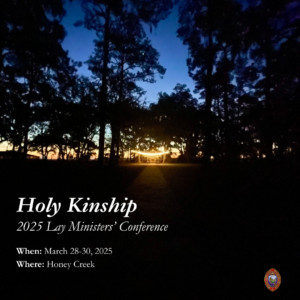
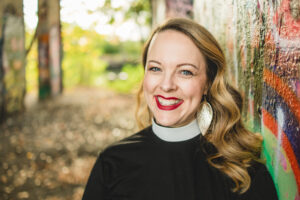 Callie Swanlund
Callie Swanlund Anders found the camera loaded with color film and quickly captured the view in a photo called Earthrise. Everything any human had ever known could be seen in what looked to all like a blue marble hovering over the bleak lunar landscape and otherwise alone the vast emptiness of space. That startlingly new perspective, seeing earth from space, made all of human existence appear smaller, more fragile, than ever before.
Anders found the camera loaded with color film and quickly captured the view in a photo called Earthrise. Everything any human had ever known could be seen in what looked to all like a blue marble hovering over the bleak lunar landscape and otherwise alone the vast emptiness of space. That startlingly new perspective, seeing earth from space, made all of human existence appear smaller, more fragile, than ever before. 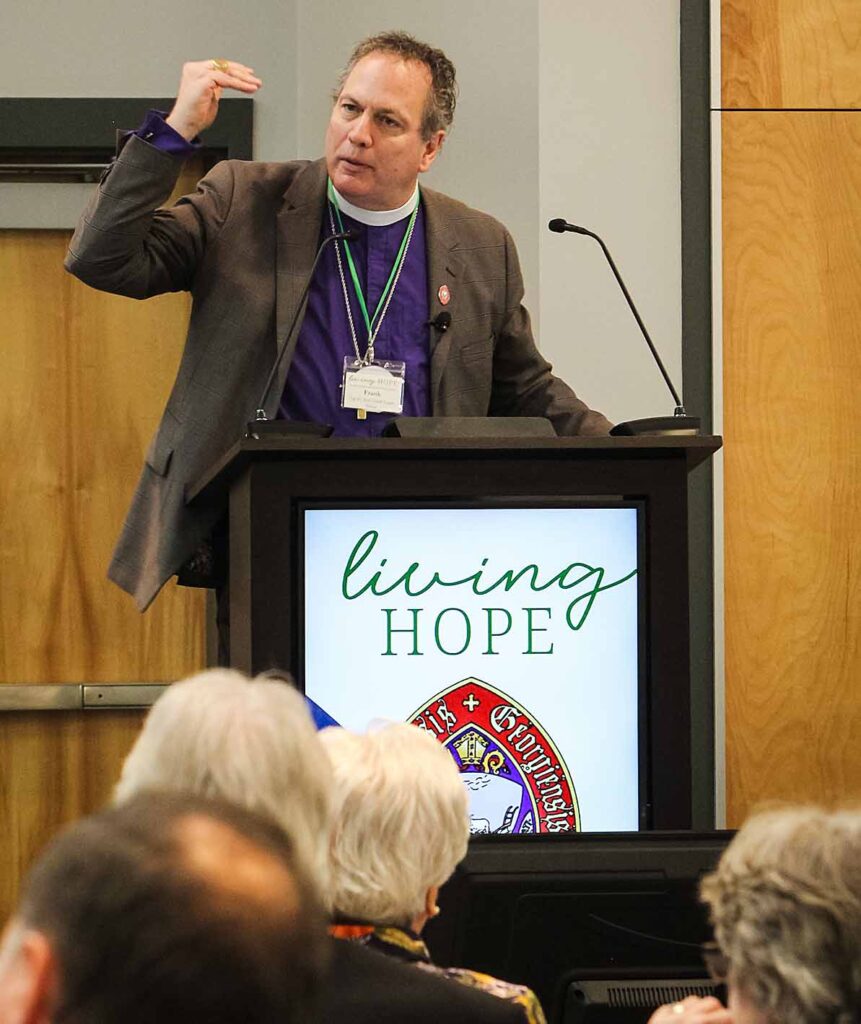 We see this in the Acts of the Apostles as in the first seven chapters of this story of what happened to Jesus’ followers after his resurrection we see how they preach with boldness and thousands come to faith. Then as that seventh chapter is ending, the Deacon Stephen is stoned to death. A persecutation breaks out against the Jesus Movement and the community scatters. Then in Acts 8, we see how God uses this tragedy to spread the Gospel. Disciples who would have stayed together in Jerusalem are soon spreading the grace, mercy, and forgiveness they have found to people who would have remained lost and left out if the faith had stayed within that small geographic area.
We see this in the Acts of the Apostles as in the first seven chapters of this story of what happened to Jesus’ followers after his resurrection we see how they preach with boldness and thousands come to faith. Then as that seventh chapter is ending, the Deacon Stephen is stoned to death. A persecutation breaks out against the Jesus Movement and the community scatters. Then in Acts 8, we see how God uses this tragedy to spread the Gospel. Disciples who would have stayed together in Jerusalem are soon spreading the grace, mercy, and forgiveness they have found to people who would have remained lost and left out if the faith had stayed within that small geographic area. This sea anchor stops the craft from drifting downwind. The sea anchor keeps the bow pointing windward, facing the waves head on. The reason this image speaks to me is that it shows that we are not being blown about by the winds of the culture or doing what the open water equivalent is of an ostrich burying its head. A sea anchor offers real stability, keeping a boat from being tossed to and fro and blown about by every wind. Anchored to the sea itself, the boat is not pushed off course, but turned into the storm in what could otherwise be an overcoming sea, we can not only endure, but in the words of the hymn Joyful, Joyful, we can experience the “Wellspring of the joy of living, ocean-depth of happy rest.”
This sea anchor stops the craft from drifting downwind. The sea anchor keeps the bow pointing windward, facing the waves head on. The reason this image speaks to me is that it shows that we are not being blown about by the winds of the culture or doing what the open water equivalent is of an ostrich burying its head. A sea anchor offers real stability, keeping a boat from being tossed to and fro and blown about by every wind. Anchored to the sea itself, the boat is not pushed off course, but turned into the storm in what could otherwise be an overcoming sea, we can not only endure, but in the words of the hymn Joyful, Joyful, we can experience the “Wellspring of the joy of living, ocean-depth of happy rest.”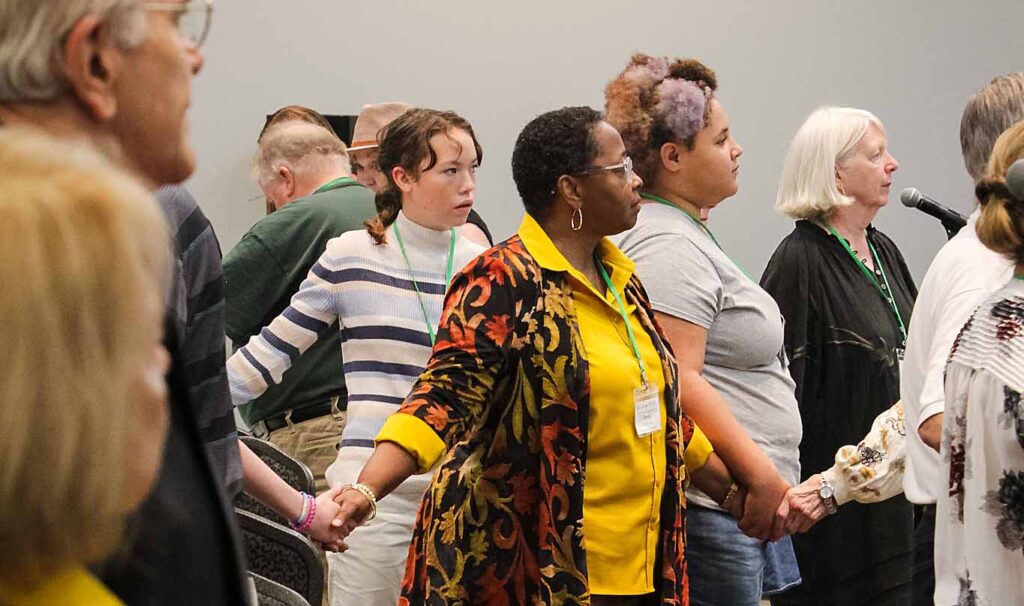
 Since we last met in convention in Augusta, that city has been hit hard by Hurricane Helene. As I said in my sermon this morning, the aftermath showed Episcopalians serving their neighbors including at Saint Paul’s where our previous convention Eucharist was celebrated and the Byllesby Center which is supported significantly by Good Shepherd where the convention met in the school gym. While many of us have been able to move on, it will be quite a while before many people in Central and South Georgia can say their lives are back to normal. Crisis reveals what is already present in a community and the Hurricane revealed the faith and resilience of our people and communities.
Since we last met in convention in Augusta, that city has been hit hard by Hurricane Helene. As I said in my sermon this morning, the aftermath showed Episcopalians serving their neighbors including at Saint Paul’s where our previous convention Eucharist was celebrated and the Byllesby Center which is supported significantly by Good Shepherd where the convention met in the school gym. While many of us have been able to move on, it will be quite a while before many people in Central and South Georgia can say their lives are back to normal. Crisis reveals what is already present in a community and the Hurricane revealed the faith and resilience of our people and communities.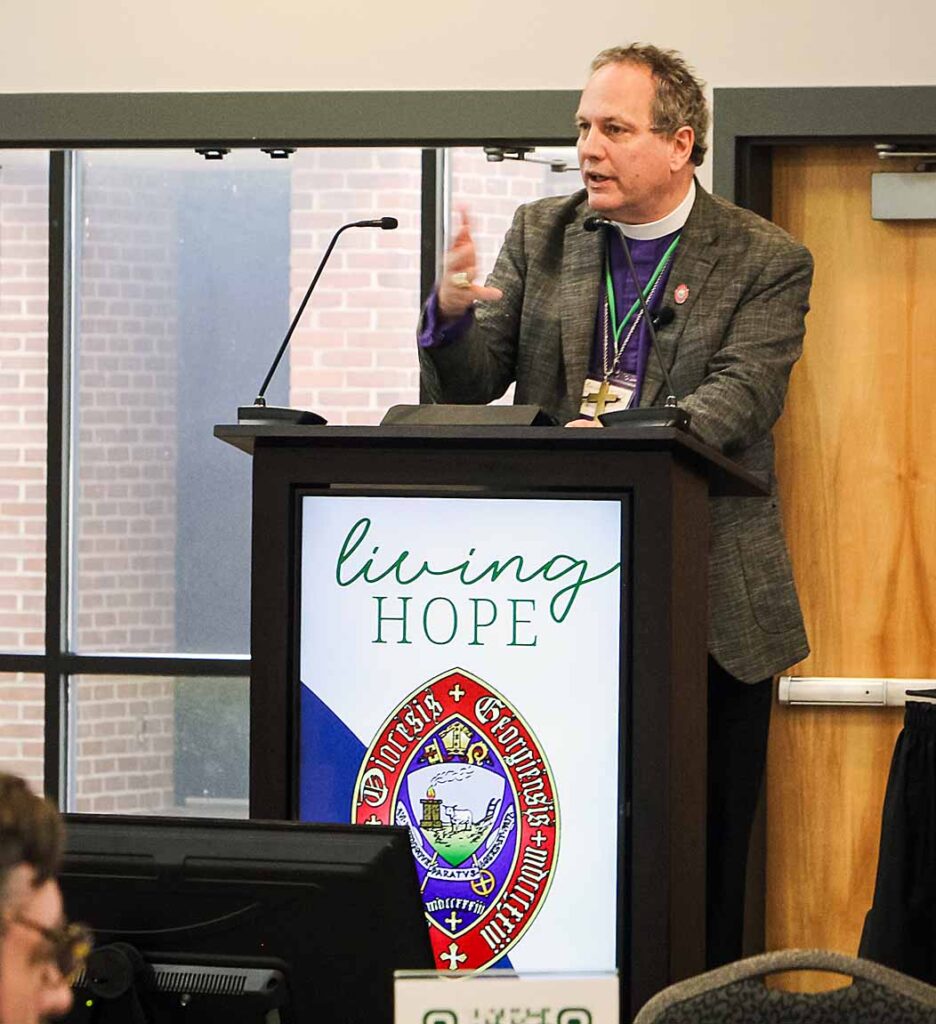 As I have been getting feedback from the listening sessions and the survey, I have seen the direction the Diocese wishes to move. While there is more to hear, I already see clearly the ways in which the diocesan staff has to be more responsive to you, the people of the Diocese. There are two tiers in the Diocese—those who know staff well and have no trouble getting what they need from staff and those who don’t know who to call or how to learn where to go for help. This is not based on the size of a congregation, but the familiarity with the team. This cannot continue. To address this, I am taking a multi-pronged approach. We are making which staff to call for what is more readily evident on the website. We will also have a complete website redesign in 2025 with the sole goal of making it easier for you to find who you need and what you need. In addition, our phone system now lets a caller more easily reach the person you need. Additionally, I know that I need a Chief of Staff as my travel schedule has me away from the office enough that the staff needs a leader who is with them when I am traveling. Some other changes on staff are taking some responsibilities off of Canon Loren Lasch’s load and I am naming her the Canon to the Ordinary and Chief of Staff. This acknowledges some of what has already been a part of her work with the staff and leaning into it more.
As I have been getting feedback from the listening sessions and the survey, I have seen the direction the Diocese wishes to move. While there is more to hear, I already see clearly the ways in which the diocesan staff has to be more responsive to you, the people of the Diocese. There are two tiers in the Diocese—those who know staff well and have no trouble getting what they need from staff and those who don’t know who to call or how to learn where to go for help. This is not based on the size of a congregation, but the familiarity with the team. This cannot continue. To address this, I am taking a multi-pronged approach. We are making which staff to call for what is more readily evident on the website. We will also have a complete website redesign in 2025 with the sole goal of making it easier for you to find who you need and what you need. In addition, our phone system now lets a caller more easily reach the person you need. Additionally, I know that I need a Chief of Staff as my travel schedule has me away from the office enough that the staff needs a leader who is with them when I am traveling. Some other changes on staff are taking some responsibilities off of Canon Loren Lasch’s load and I am naming her the Canon to the Ordinary and Chief of Staff. This acknowledges some of what has already been a part of her work with the staff and leaning into it more. Now, Jesus joins Cleopas and the unnamed other disciple on the road. They are in the depths of despair as they walk toward Emmaus. Neither of these first followers of Jesus know this seeming stranger on the road to be their Rabbi. This lack of recognition reveals the way despair clouds our vision and hinders us from seeing rightly.
Now, Jesus joins Cleopas and the unnamed other disciple on the road. They are in the depths of despair as they walk toward Emmaus. Neither of these first followers of Jesus know this seeming stranger on the road to be their Rabbi. This lack of recognition reveals the way despair clouds our vision and hinders us from seeing rightly.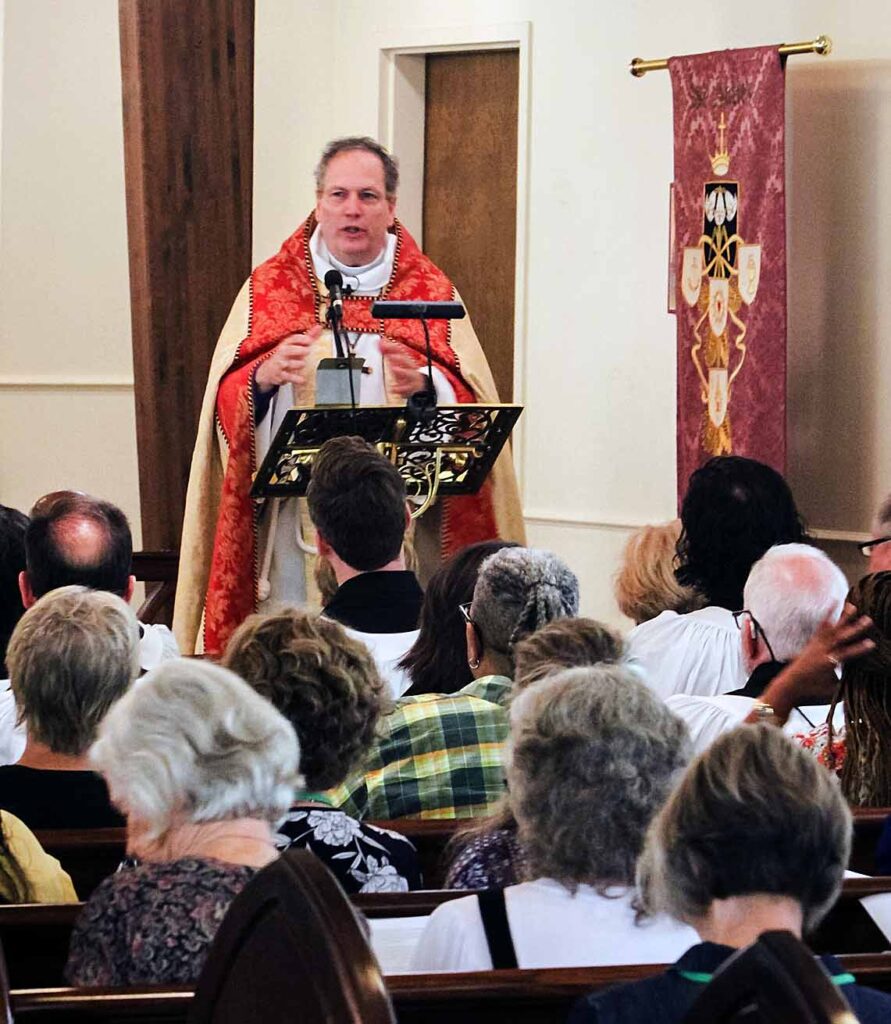 I want to pause here to note how the Enlightenment that led to the gifts of modernity also found its way into our faith. The Desert Mothers and Fathers saw the struggle of good and evil playing out not just in their lives as they saw the cosmic struggle of good and evil playing itself out within their own hearts as they sought through their prayers and fasting to overcome temptations. They lived in a world shot through with a sense of transcendence, the knowledge that what we see is not all that exists in the universe as the time we live in is held in eternity.
I want to pause here to note how the Enlightenment that led to the gifts of modernity also found its way into our faith. The Desert Mothers and Fathers saw the struggle of good and evil playing out not just in their lives as they saw the cosmic struggle of good and evil playing itself out within their own hearts as they sought through their prayers and fasting to overcome temptations. They lived in a world shot through with a sense of transcendence, the knowledge that what we see is not all that exists in the universe as the time we live in is held in eternity. 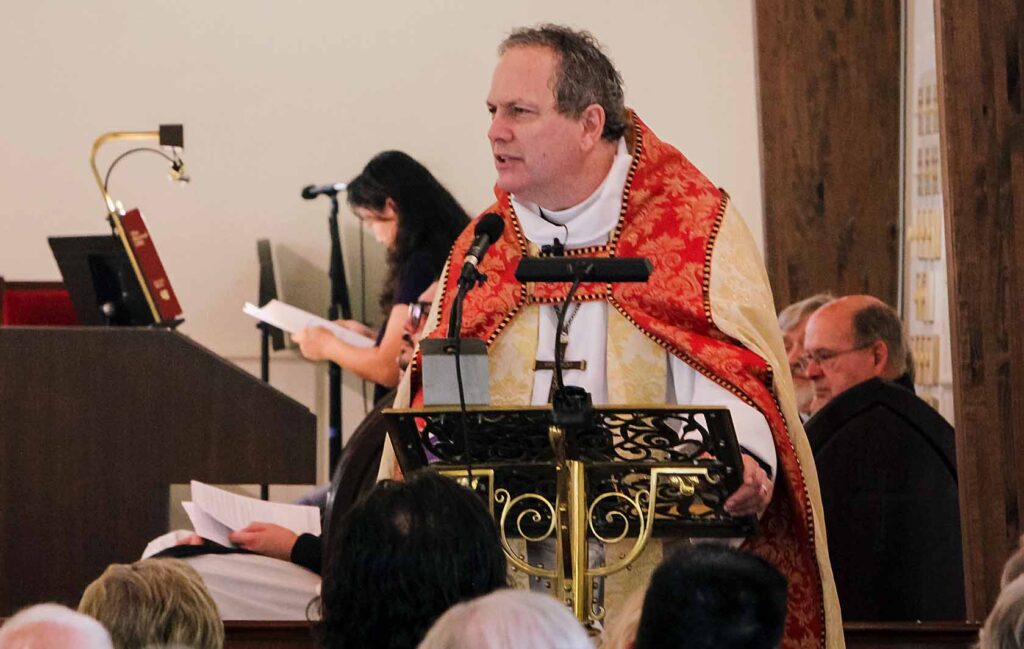 Seeing the ways God has broken into your life before gives confidence when looking to an uncertain future. For example, we can look at decline in church participation across the generations and join others in despair. Or we can look to the ways that the living God has been present with us in the past, is with us now, and already holds the future. That perspective makes it possible to be both realistic about where we are and what we face while remaining hopeful about the future. Whatever causes us to despair, when we tap into the certainty that God can, does, and will show up, we have a reason to hope.
Seeing the ways God has broken into your life before gives confidence when looking to an uncertain future. For example, we can look at decline in church participation across the generations and join others in despair. Or we can look to the ways that the living God has been present with us in the past, is with us now, and already holds the future. That perspective makes it possible to be both realistic about where we are and what we face while remaining hopeful about the future. Whatever causes us to despair, when we tap into the certainty that God can, does, and will show up, we have a reason to hope. We have received a number of inquiries from outside of the Diocese about where to send donations for Disaster relief. The first way to do this is to donate directly to the Bishop’s Fund for Disaster Relief. This money will go directly to helping our parishes and Honey Creek in meeting their deductibles as they repair damages to their properties, which is a needed type of aid that is not covered by other grants. Once those initial costs are covered, any leftover donated funds will be used for additional assistance as needed.
We have received a number of inquiries from outside of the Diocese about where to send donations for Disaster relief. The first way to do this is to donate directly to the Bishop’s Fund for Disaster Relief. This money will go directly to helping our parishes and Honey Creek in meeting their deductibles as they repair damages to their properties, which is a needed type of aid that is not covered by other grants. Once those initial costs are covered, any leftover donated funds will be used for additional assistance as needed.





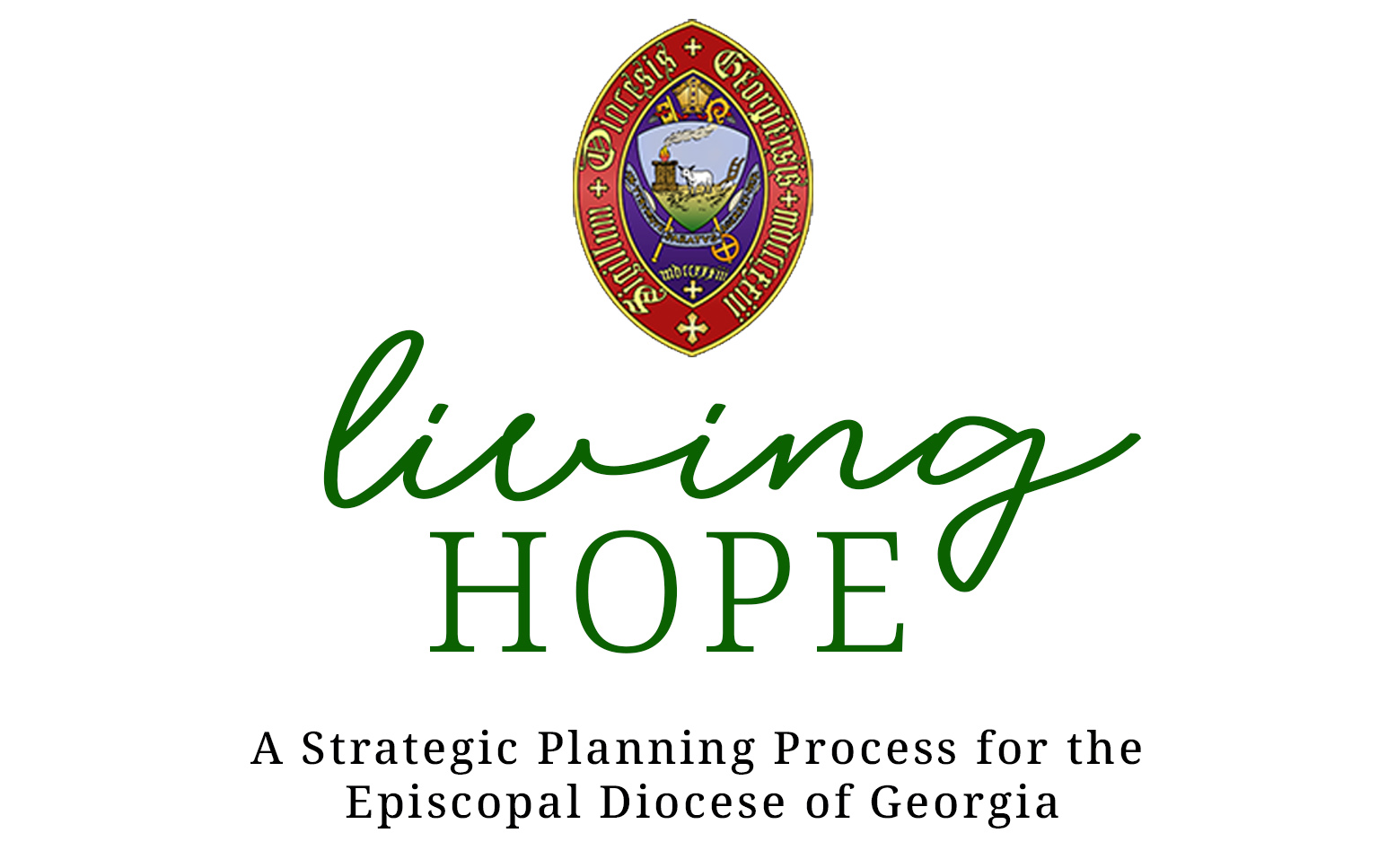
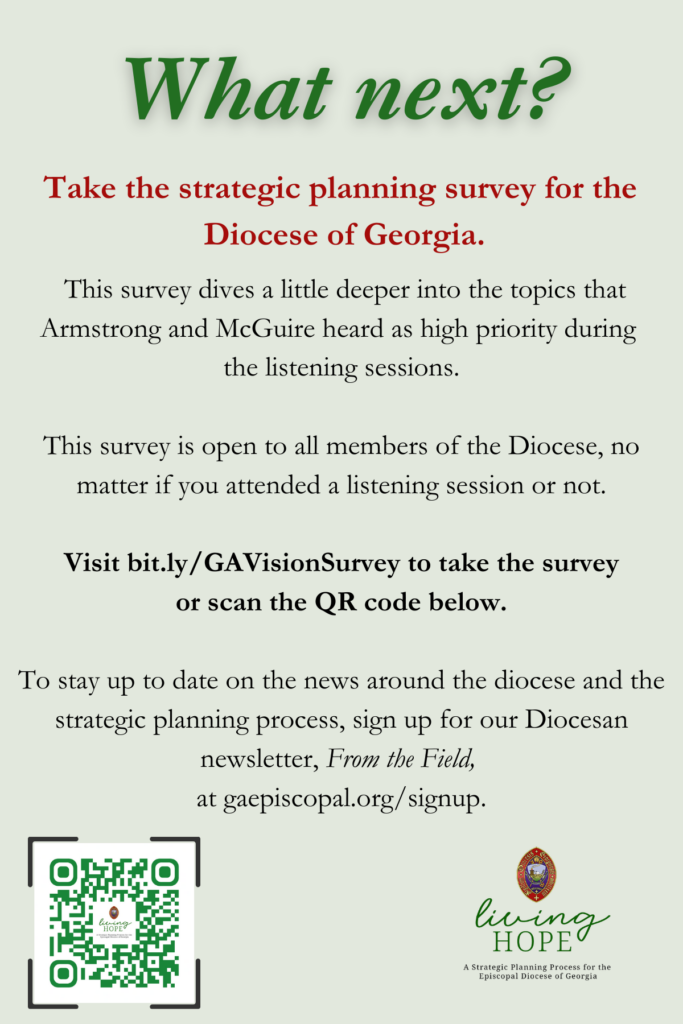 We are receiving surveys now through October 31 for our strategic planning process. Take the survey online here:
We are receiving surveys now through October 31 for our strategic planning process. Take the survey online here: 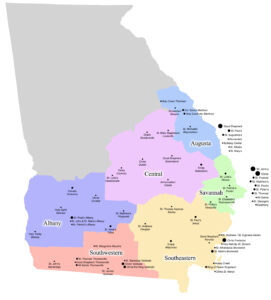 Strategic Planning Committee
Strategic Planning Committee 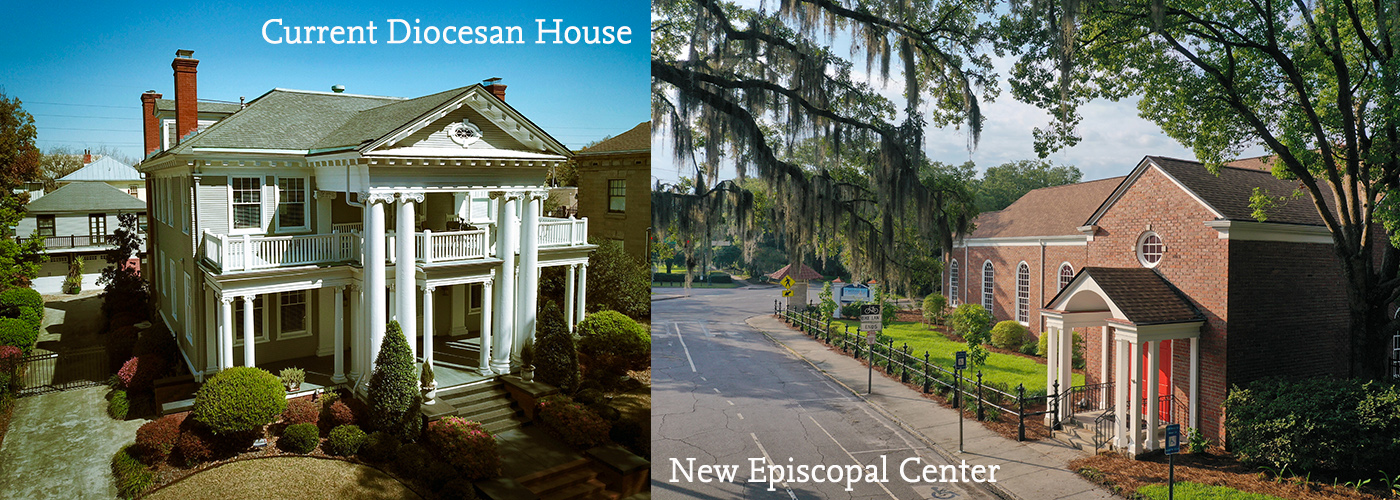
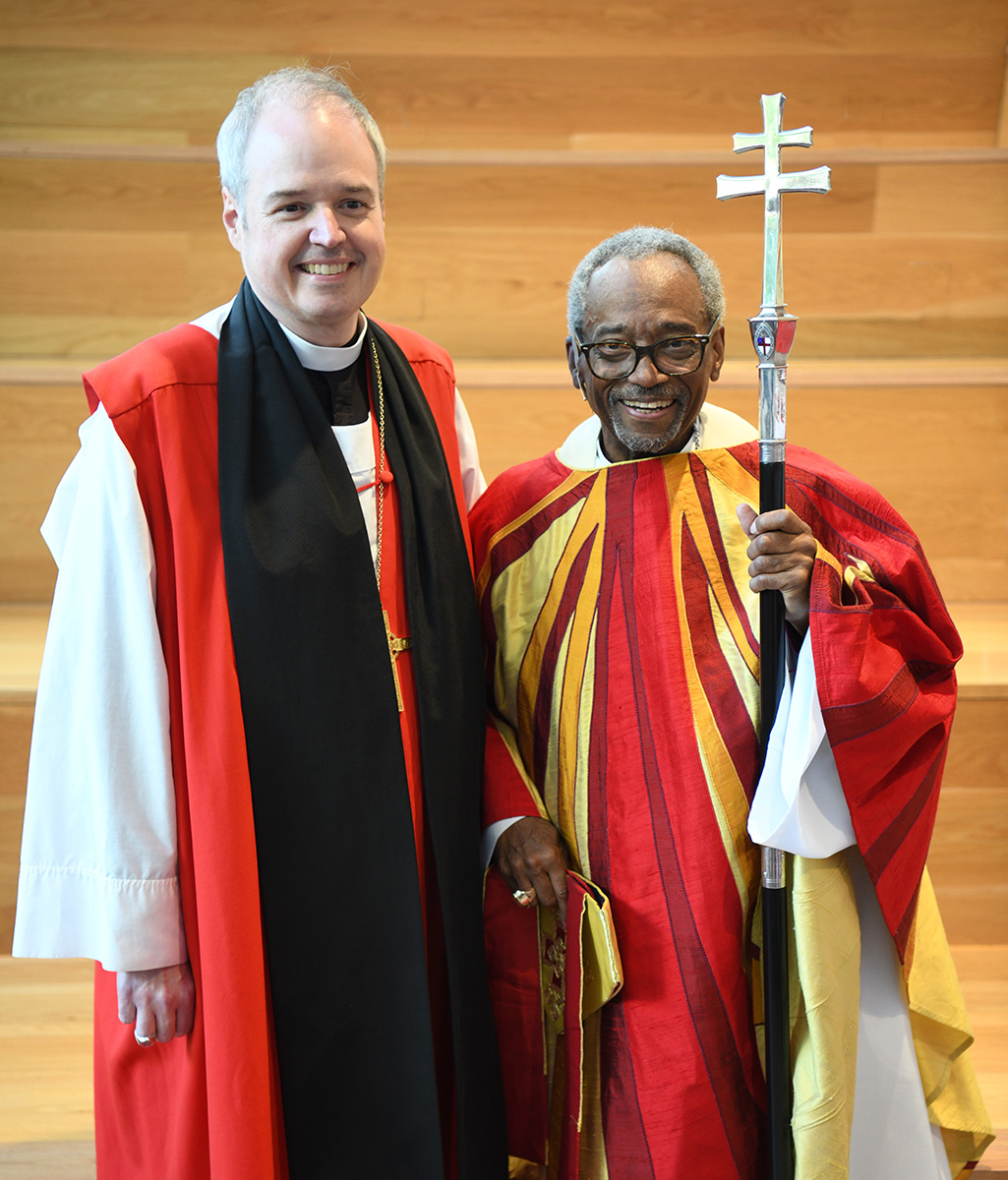
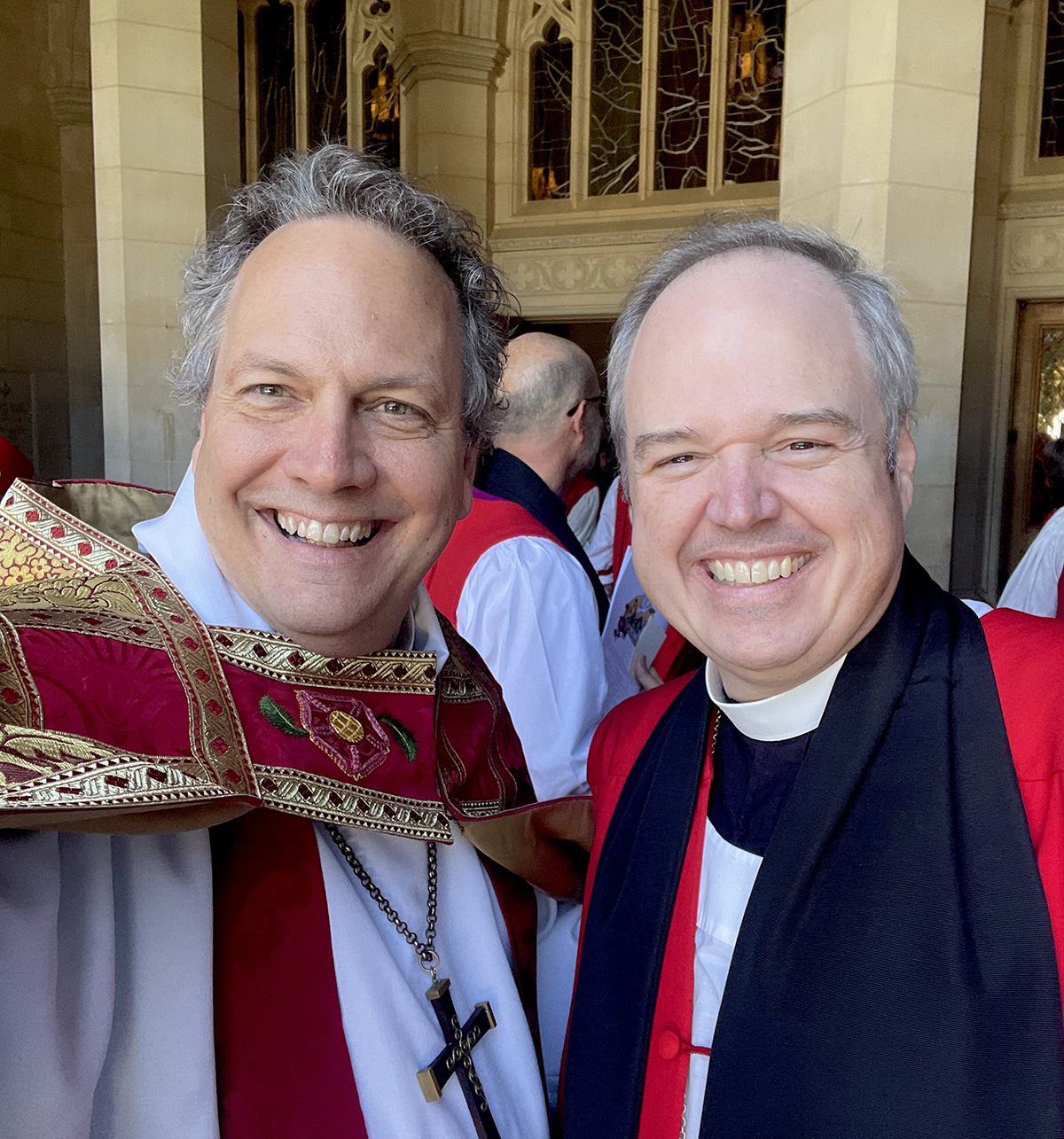 Sean said, “And finally, what about our idolatry of structures and practices that exclude and diminish our witness? We have to get it together. That’s going to mean laying some things down.” By the end of the day, an announcement went out to the church that our Presiding Bishop-Elect
Sean said, “And finally, what about our idolatry of structures and practices that exclude and diminish our witness? We have to get it together. That’s going to mean laying some things down.” By the end of the day, an announcement went out to the church that our Presiding Bishop-Elect 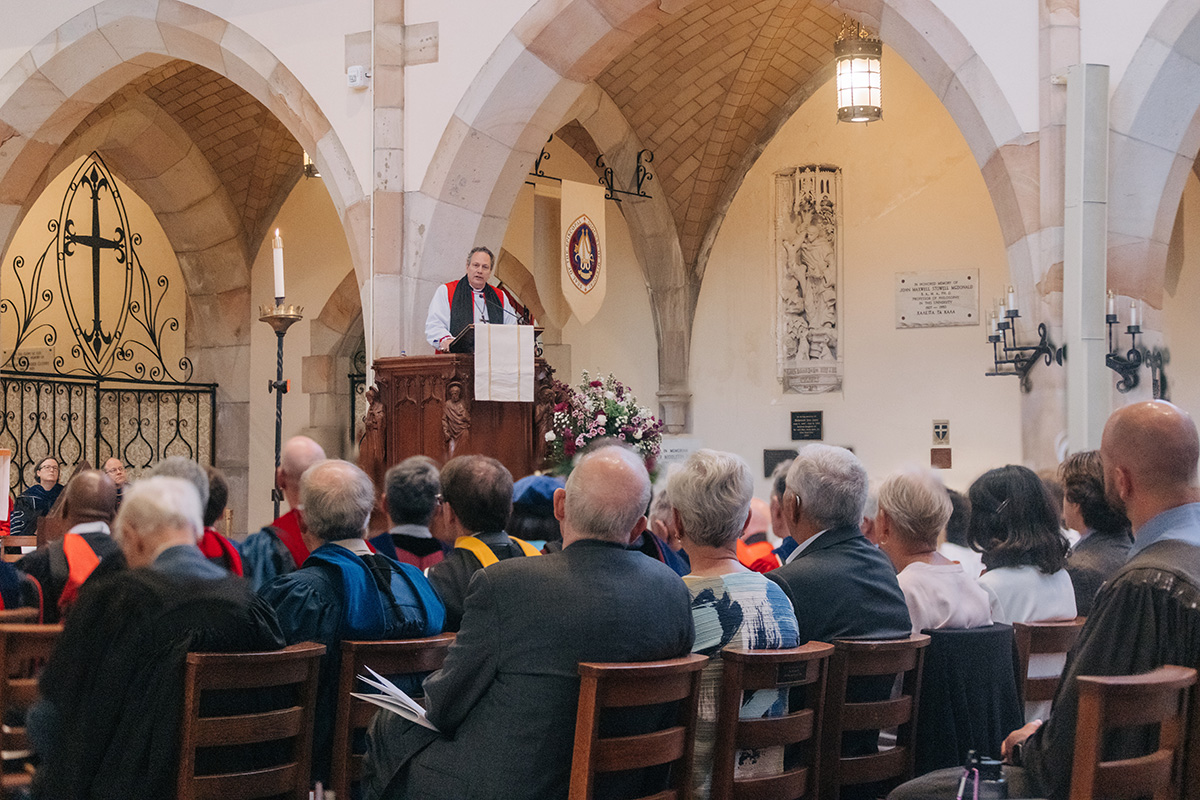
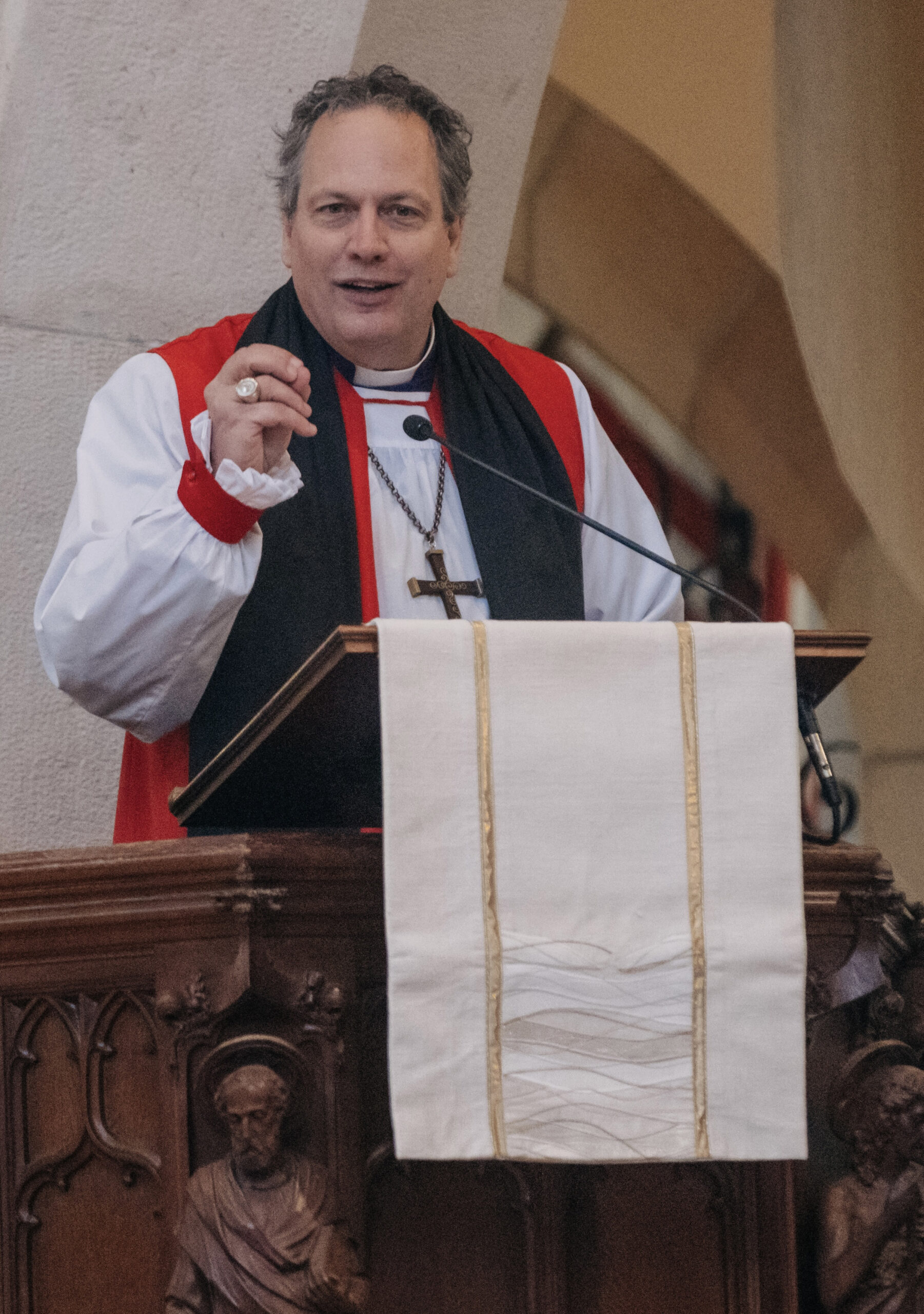 The gift nestled in our propers for this commencement is clarity that while we long to see lives changed by the Good News of Jesus, that
The gift nestled in our propers for this commencement is clarity that while we long to see lives changed by the Good News of Jesus, that 
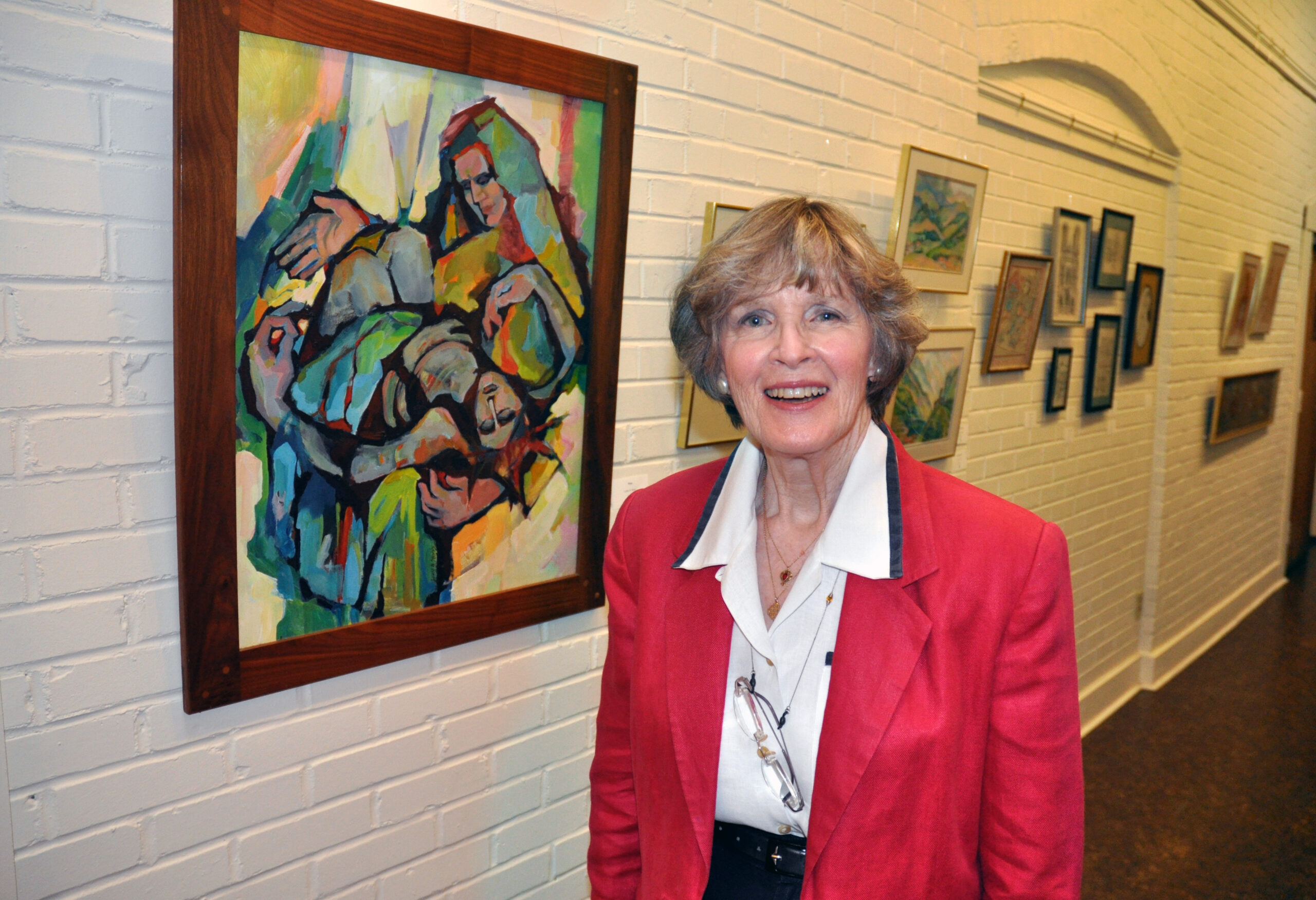
 This Lent, the Diocese of Georgia offers a study using a book The Good Life written by the directors of a more than eight-decade-long study of what makes for a fulfilling life. The Harvard Study of Human Development offers a window into lives of meaning and purpose through the data they have collected. The book also looks at what is gleaned from similar studies around the world. While the book itself does not make connections to our faith in Jesus, the discussion guide does.
This Lent, the Diocese of Georgia offers a study using a book The Good Life written by the directors of a more than eight-decade-long study of what makes for a fulfilling life. The Harvard Study of Human Development offers a window into lives of meaning and purpose through the data they have collected. The book also looks at what is gleaned from similar studies around the world. While the book itself does not make connections to our faith in Jesus, the discussion guide does.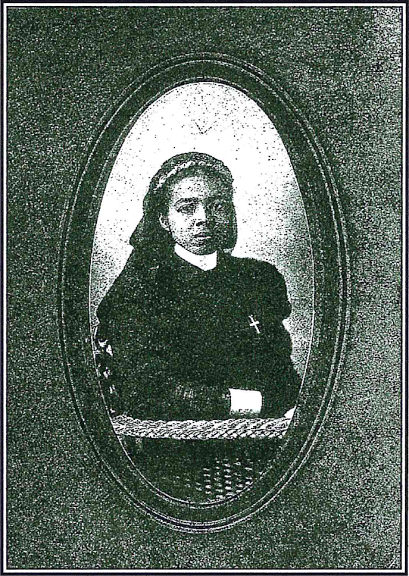 The delegates to the 2023 diocesan convention unanimously voted to name Deaconess Alexander as the Patron Saint of the Diocese. Deaconess Anna Ellison Butler Alexander (1865-1947) has been recognized as a saint by the Diocese of Georgia since 1998 and by the General Convention of The Episcopal Church since 2018, with her feast day celebrated on September 24.
The delegates to the 2023 diocesan convention unanimously voted to name Deaconess Alexander as the Patron Saint of the Diocese. Deaconess Anna Ellison Butler Alexander (1865-1947) has been recognized as a saint by the Diocese of Georgia since 1998 and by the General Convention of The Episcopal Church since 2018, with her feast day celebrated on September 24.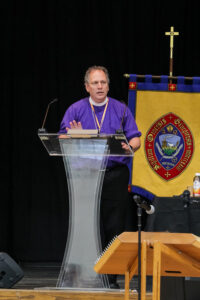 Kindle our hearts and awaken hope.
Kindle our hearts and awaken hope.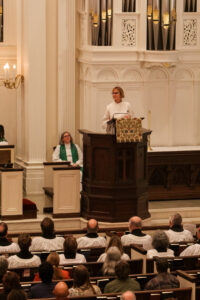 Speak God, for this servant is listening.
Speak God, for this servant is listening.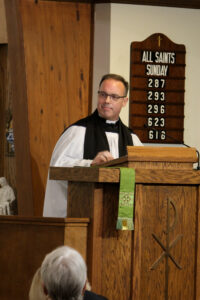 When the weather is nice, one of the things I enjoy is grilling on the back patio of our home. When cooking outside, I use lump charcoal, which means that the process of starting the fire is not immediate like with a gas grill. Those of you who are familiar with lump charcoal know that it is not uniform in shape like manufactured briquets that are mostly the same size. I sometimes think of this form of grilling as being similar to cooking over a campfire. The lumps of charcoal, in a variety shapes and densities, must be stacked in such a way as to allow for air to flow through the heap. After lighting the stack, I make sure the bottom and top vents are open to allow for the greatest amount of air to flow and feed the smoldering flame. After about 15 to 20 minutes, I usually return to find the embers ablaze with fire and ready for whatever needs to be cooked.
When the weather is nice, one of the things I enjoy is grilling on the back patio of our home. When cooking outside, I use lump charcoal, which means that the process of starting the fire is not immediate like with a gas grill. Those of you who are familiar with lump charcoal know that it is not uniform in shape like manufactured briquets that are mostly the same size. I sometimes think of this form of grilling as being similar to cooking over a campfire. The lumps of charcoal, in a variety shapes and densities, must be stacked in such a way as to allow for air to flow through the heap. After lighting the stack, I make sure the bottom and top vents are open to allow for the greatest amount of air to flow and feed the smoldering flame. After about 15 to 20 minutes, I usually return to find the embers ablaze with fire and ready for whatever needs to be cooked.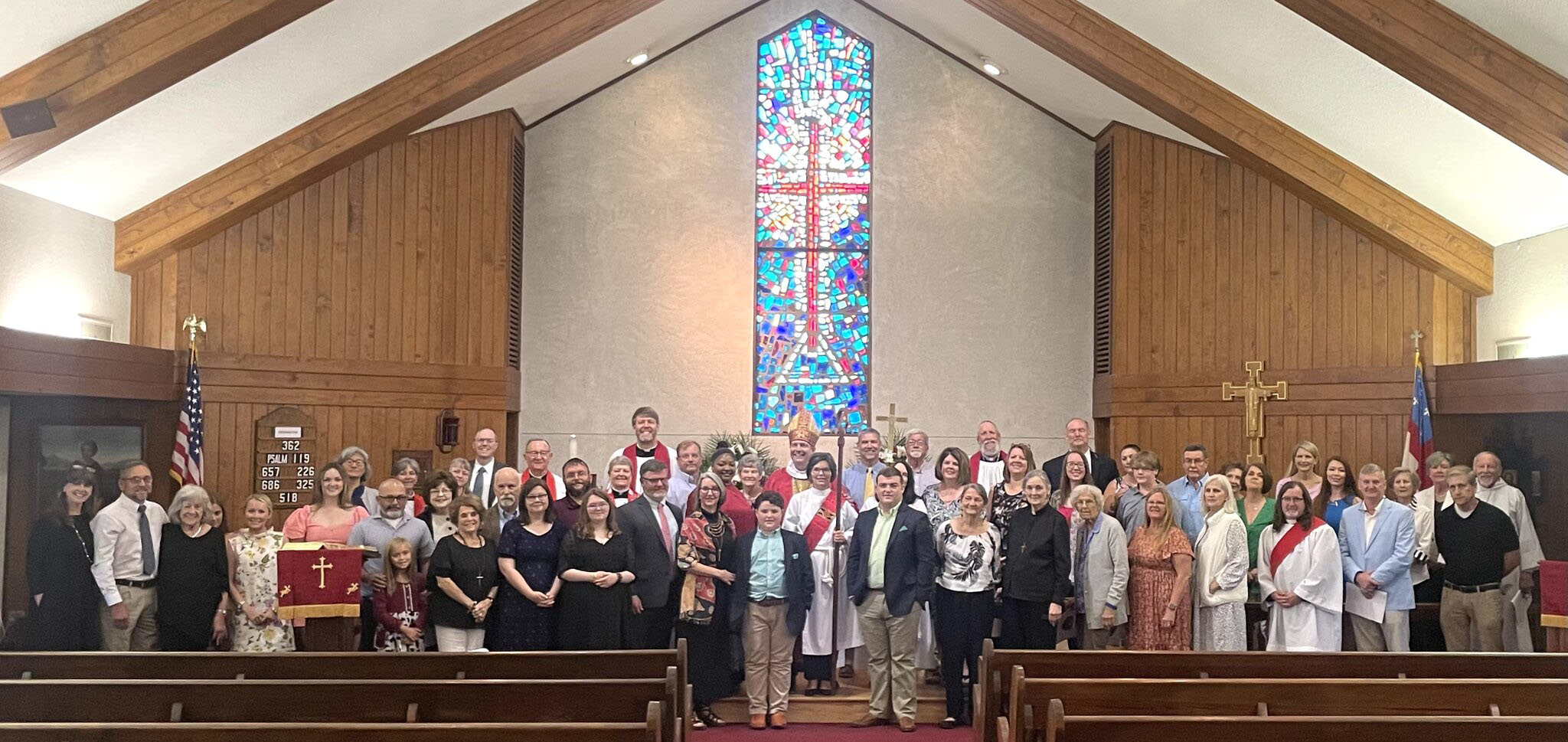
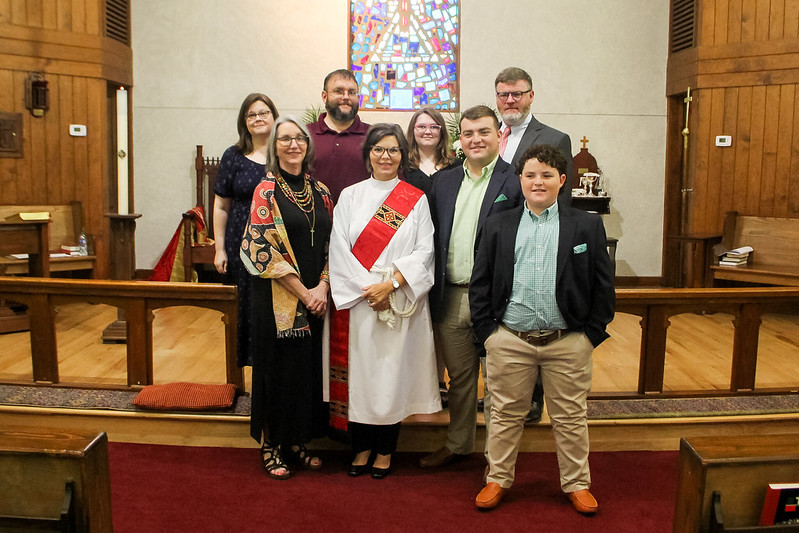 After meeting Dave at college, falling in love and marrying, the two tried to find a church home only to discover that they were miserable sinners as they had their feet metaphorically dangled over the flames of hell. While raising kids, they took a break from church. That is when Shayna’s old softball coach’s pleas to go to church with him broke through. Dale Jones persistent invitation finally reached the point where she could not keep turning him down. Shayna says of coming into this beautiful church, “I remember that first visit so well. Yes, we were a little overwhelmed with keeping up with the prayer book, and the kneeling and standing. But, [she added] we felt the love, the genuine spirit of the people, the closeness of God. I truly felt the spirit of Jesus.”
After meeting Dave at college, falling in love and marrying, the two tried to find a church home only to discover that they were miserable sinners as they had their feet metaphorically dangled over the flames of hell. While raising kids, they took a break from church. That is when Shayna’s old softball coach’s pleas to go to church with him broke through. Dale Jones persistent invitation finally reached the point where she could not keep turning him down. Shayna says of coming into this beautiful church, “I remember that first visit so well. Yes, we were a little overwhelmed with keeping up with the prayer book, and the kneeling and standing. But, [she added] we felt the love, the genuine spirit of the people, the closeness of God. I truly felt the spirit of Jesus.”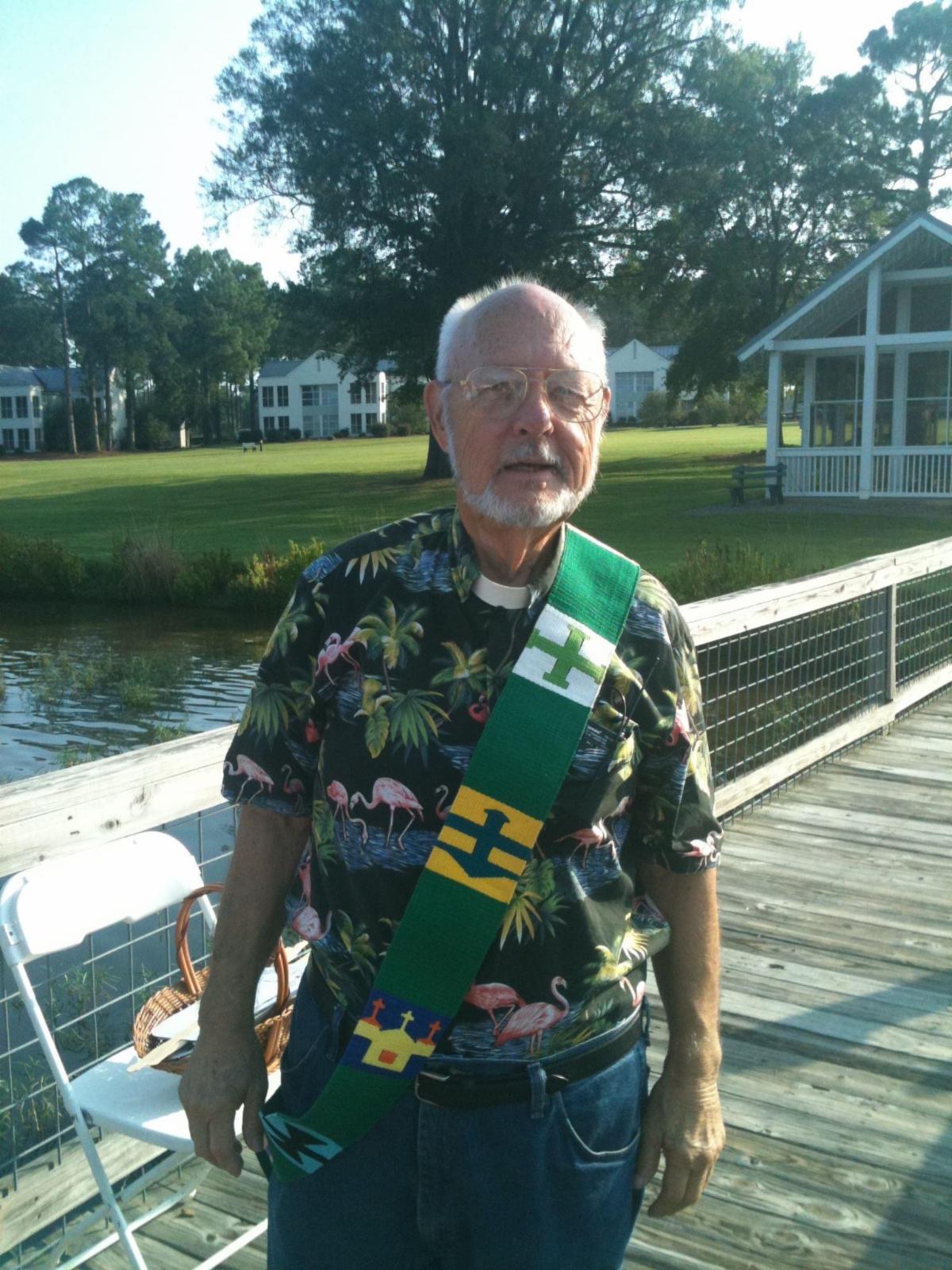 This was faith he learned in the cradle. Born at home, in the little Central Florida settlement of Clay Sink, the entire population were his family by blood and marriage. He was at birth added to the cradle roll of Clay Sink Baptist Church. While his family would move around the Lakeland area, church was a constant for his parents, for Johnny, and his four brothers and three sisters. He was a steady presence in Sunday School, sang in the youth choir, and took part in all the activities for youth. He made his public confession of faith at the church in Kathleen, Florida, where four generations of his family are buried.
This was faith he learned in the cradle. Born at home, in the little Central Florida settlement of Clay Sink, the entire population were his family by blood and marriage. He was at birth added to the cradle roll of Clay Sink Baptist Church. While his family would move around the Lakeland area, church was a constant for his parents, for Johnny, and his four brothers and three sisters. He was a steady presence in Sunday School, sang in the youth choir, and took part in all the activities for youth. He made his public confession of faith at the church in Kathleen, Florida, where four generations of his family are buried. Yet this fails to capture the liveliness of a woman of great depth. With a playful spirit and a great sense of humor, you just never knew what she was going to say. Of George’s call to ministry coming after he had settled well into the family’s furniture business, she said, “We were convinced it was a call from God, because we would have never thought of it.”
Yet this fails to capture the liveliness of a woman of great depth. With a playful spirit and a great sense of humor, you just never knew what she was going to say. Of George’s call to ministry coming after he had settled well into the family’s furniture business, she said, “We were convinced it was a call from God, because we would have never thought of it.”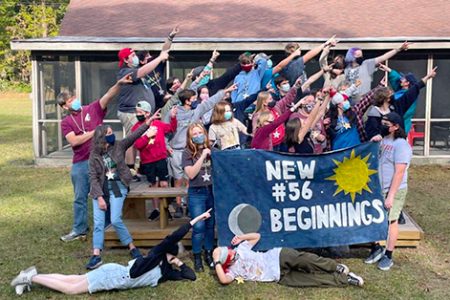

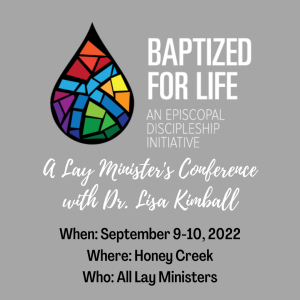 “Baptized for Life: A Lay Ministers’ Conference” will take place September 9-10 at Honey Creek! This conference is intended for any lay person in the Diocese who is in any active ministry in their congregation. Examples of such lay ministries include those who assist or lead worship, serve on the Vestry, serve on committees, teach Sunday School or lead youth activities, serve on the Altar Guild, care for the buildings and grounds, lead outreach activities, and more. This conference will be led by Dr. Lisa Kimball, the Vice President for Lifelong Learning and the James Maxwell Professor Chair of Lifelong Christian Formation at Virginia Theological Seminary. “Dr. Kimball has focused her teaching and research on lifelong, life-wide, and life-deep discipleship and Christian vocation…She is a passionate advocate for lay ministry, the full inclusion of all generations, digital literacy, and leaders who are confident teachers of the faith.” For more information about Dr. Kimball’s background and history,
“Baptized for Life: A Lay Ministers’ Conference” will take place September 9-10 at Honey Creek! This conference is intended for any lay person in the Diocese who is in any active ministry in their congregation. Examples of such lay ministries include those who assist or lead worship, serve on the Vestry, serve on committees, teach Sunday School or lead youth activities, serve on the Altar Guild, care for the buildings and grounds, lead outreach activities, and more. This conference will be led by Dr. Lisa Kimball, the Vice President for Lifelong Learning and the James Maxwell Professor Chair of Lifelong Christian Formation at Virginia Theological Seminary. “Dr. Kimball has focused her teaching and research on lifelong, life-wide, and life-deep discipleship and Christian vocation…She is a passionate advocate for lay ministry, the full inclusion of all generations, digital literacy, and leaders who are confident teachers of the faith.” For more information about Dr. Kimball’s background and history, 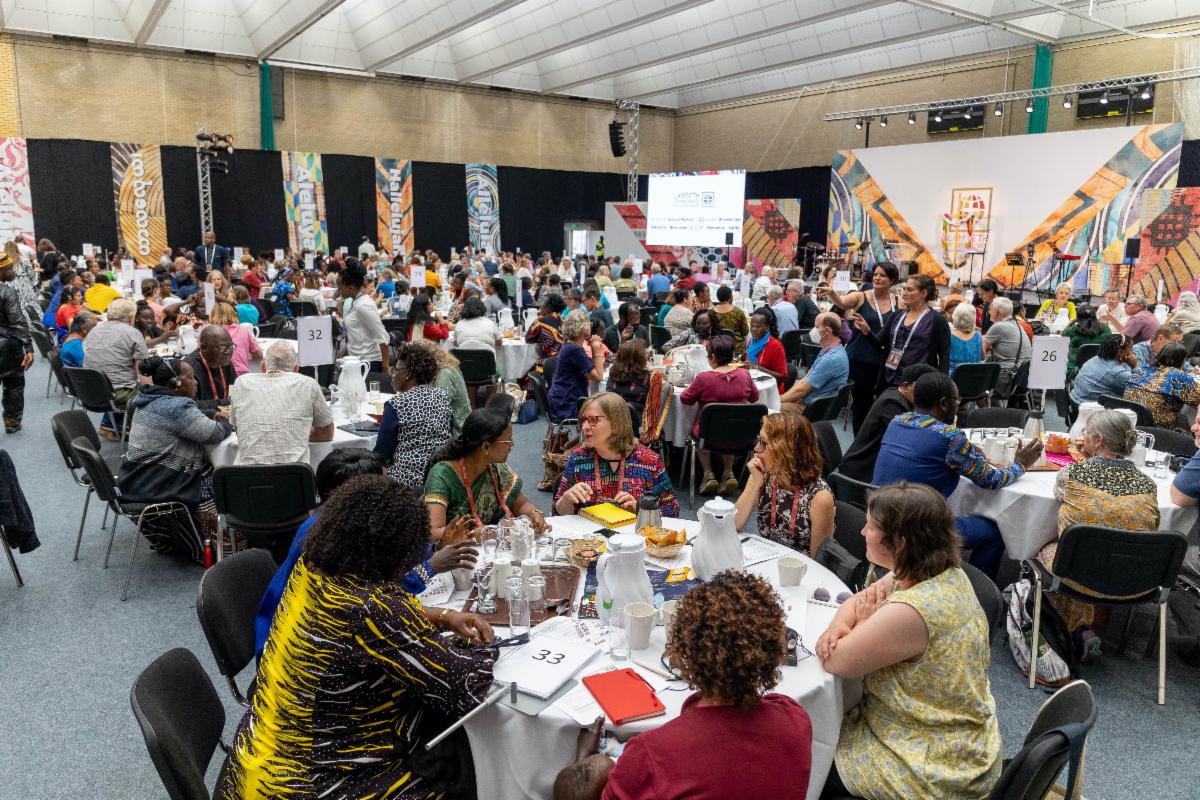 The Lambeth Conference—as an introvert, I both looked forward to and dreaded attending. From meeting with other spouses of Bishops (via Zoom instead of in-person because of Covid), I learned that we would be broken into small groups of 8-10 with other spouses from around the globe. Which meant, I was sure, that I would have to hear the simple phrase that accelerates the hearts of introverts: Let’s go around and introduce ourselves.
The Lambeth Conference—as an introvert, I both looked forward to and dreaded attending. From meeting with other spouses of Bishops (via Zoom instead of in-person because of Covid), I learned that we would be broken into small groups of 8-10 with other spouses from around the globe. Which meant, I was sure, that I would have to hear the simple phrase that accelerates the hearts of introverts: Let’s go around and introduce ourselves.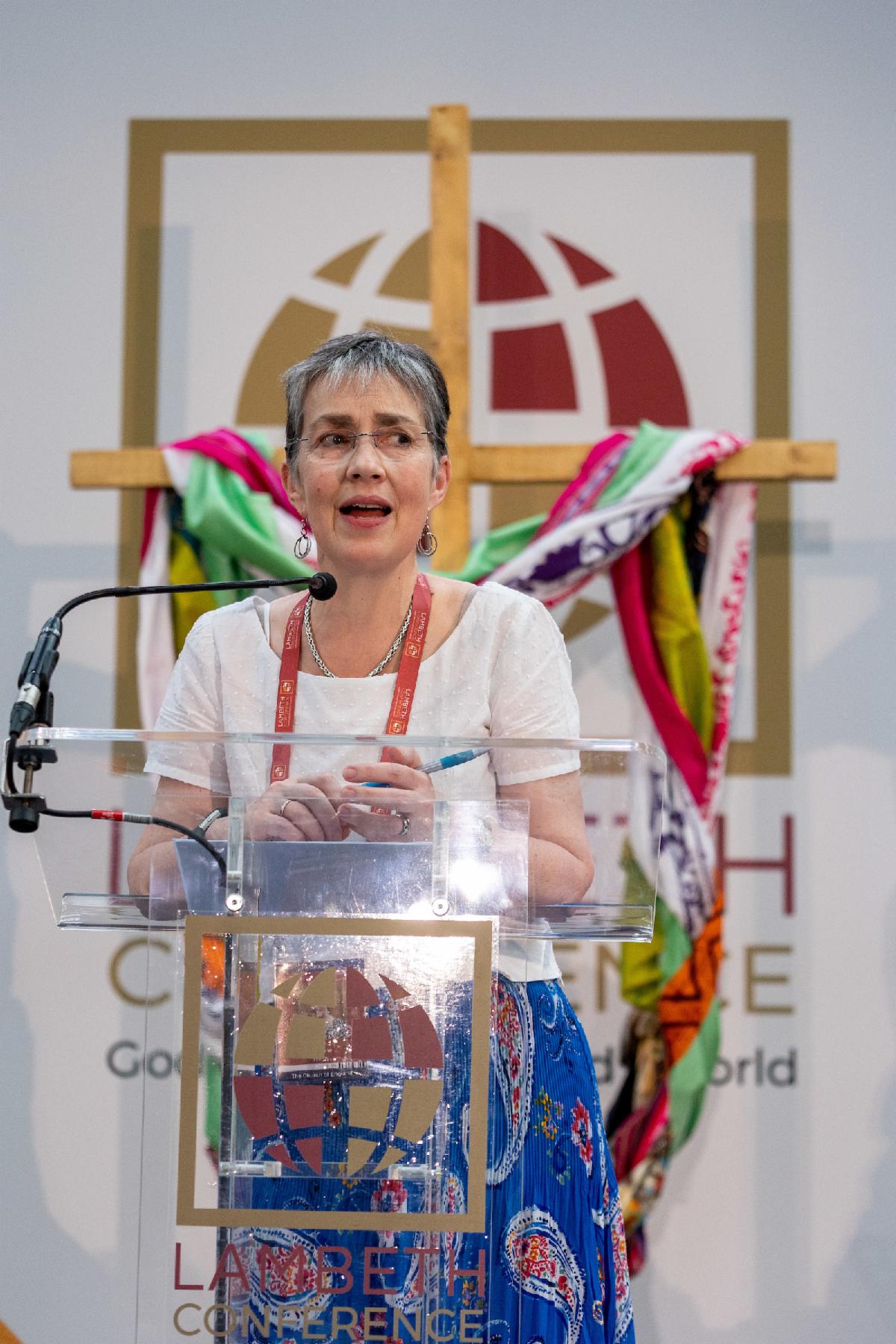 Working with the app also helped me to acquaint myself with some of the spouses attending Lambeth. So, the first time I was asked to introduce myself, I was already familiar with a number of spouses. (photo of Caroline Welby)
Working with the app also helped me to acquaint myself with some of the spouses attending Lambeth. So, the first time I was asked to introduce myself, I was already familiar with a number of spouses. (photo of Caroline Welby)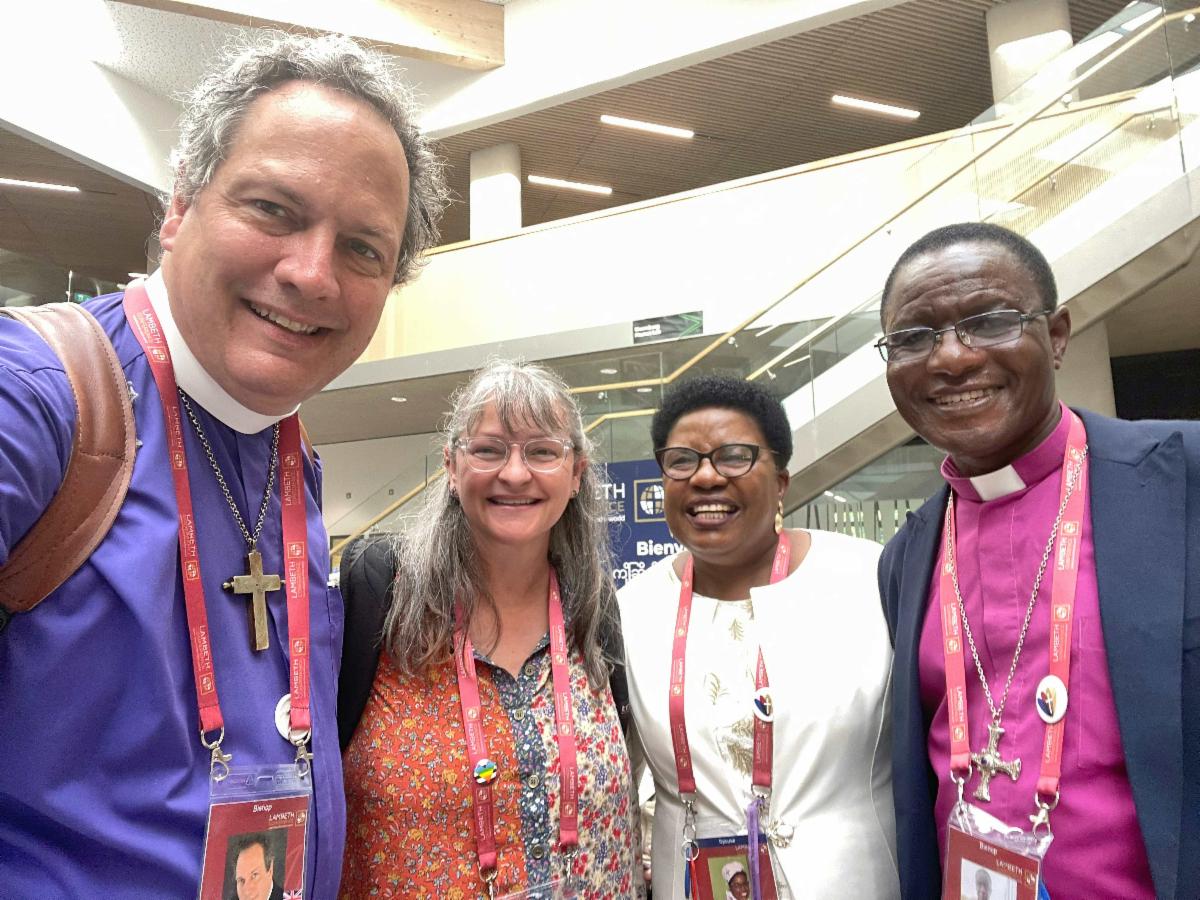 We would then break up into our small group Bible studies with the Bishops crossing the street to gather at the Parkwood Apartments in small groups and the spouses hurrying over to Venue 2 to gather at our round tables. Here we would look at the verses we had just heard about and speak to them in what became the favorite phrase at the Lambeth Conference: in my context. Because the gathered bishops and spouses were from more than 160 countries from around the world, the context for a spouse in South Sudan was different than the context for a spouse in Pakistan, which was different for a spouse in Malaysia, which was different from a spouse in America . . .
We would then break up into our small group Bible studies with the Bishops crossing the street to gather at the Parkwood Apartments in small groups and the spouses hurrying over to Venue 2 to gather at our round tables. Here we would look at the verses we had just heard about and speak to them in what became the favorite phrase at the Lambeth Conference: in my context. Because the gathered bishops and spouses were from more than 160 countries from around the world, the context for a spouse in South Sudan was different than the context for a spouse in Pakistan, which was different for a spouse in Malaysia, which was different from a spouse in America . . .
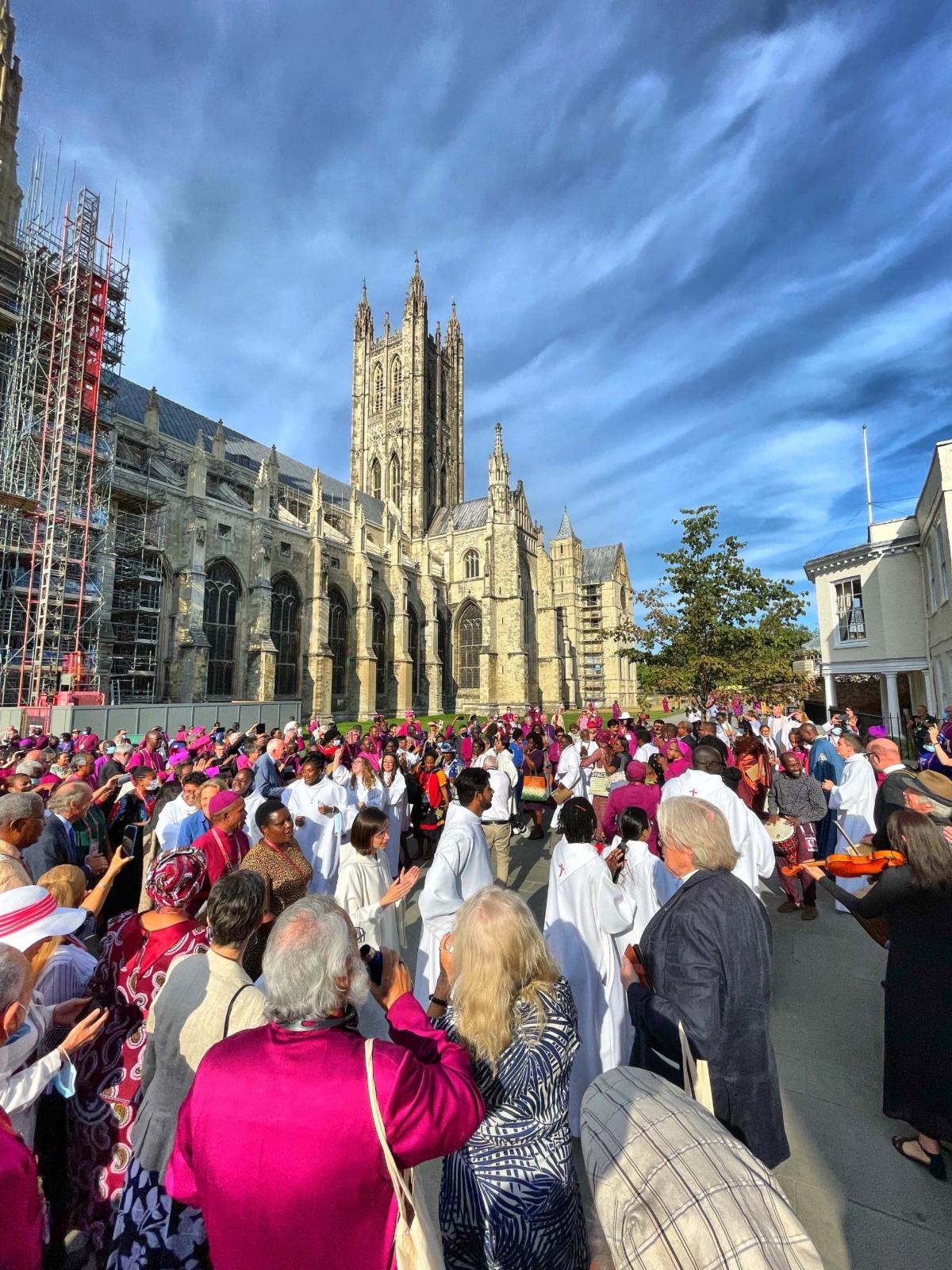 In every congregation of the Diocese of Georgia, I know people who disagree with each other profoundly on politics (and sports which is even more difficult) who are grateful to worship together and miss one another if someone is not in church. I value this so much. We differ in many ways, but we all know that we need Jesus and we need each other. I have seen this writ large in gathering with more than 650 bishops from 165 countries at the Lambeth Conference.
In every congregation of the Diocese of Georgia, I know people who disagree with each other profoundly on politics (and sports which is even more difficult) who are grateful to worship together and miss one another if someone is not in church. I value this so much. We differ in many ways, but we all know that we need Jesus and we need each other. I have seen this writ large in gathering with more than 650 bishops from 165 countries at the Lambeth Conference. When we gathered here, Archbishop Welby said, “You are the shepherds of your flock as I am the shepherd of the flock that I serve. Let us not act in a way that disgraces our witness. Speak frankly, but in love.”
When we gathered here, Archbishop Welby said, “You are the shepherds of your flock as I am the shepherd of the flock that I serve. Let us not act in a way that disgraces our witness. Speak frankly, but in love.”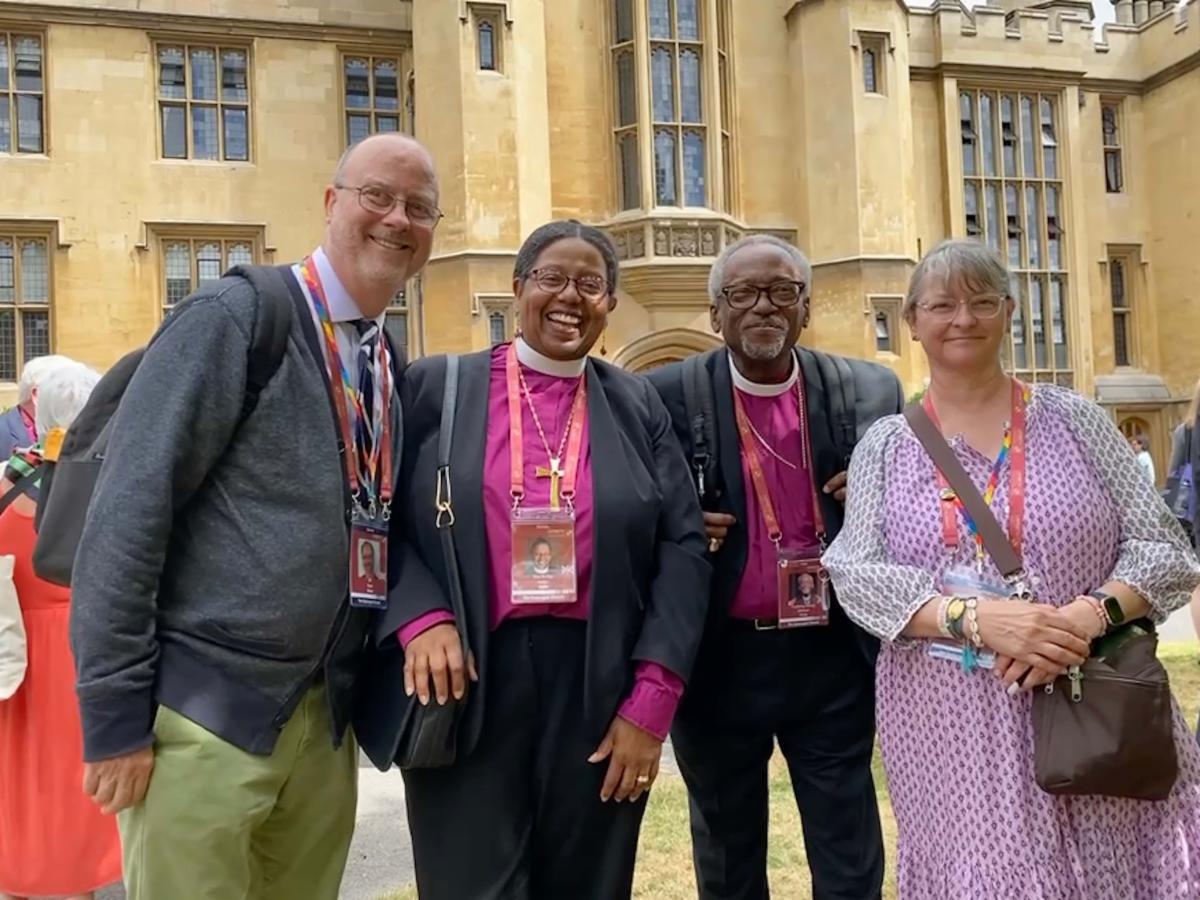 Last evening, in a bit of serendipity, I came back to the dorm from the Eucharist walking, holding hands, and talking with the Archbishop of South Sudan, on a lovely late evening in Kent with Canterbury Cathedral at our backs and a return home in front of us. Two bishops from very different contexts with different views of a Jesus shaped life, but with the most important thing in common: we are both beloved children of God, united by one Lord, one faith, one baptism.
Last evening, in a bit of serendipity, I came back to the dorm from the Eucharist walking, holding hands, and talking with the Archbishop of South Sudan, on a lovely late evening in Kent with Canterbury Cathedral at our backs and a return home in front of us. Two bishops from very different contexts with different views of a Jesus shaped life, but with the most important thing in common: we are both beloved children of God, united by one Lord, one faith, one baptism. I am at the Lambeth Conference of Bishops of the Anglican Communion with more than 650 bishops and more than 460 spouses from 165 countries. Our time together includes a deep dive into the First Letter of Peter led by the Archbishop of Canterbury, Justin Welby. This week Bishop Hosam Rafa Naoum, the Bishop of Jerusalem and the Middle East, who I met at his church in 2018 before either of us were elected as bishops, told me then and repeated again to a gathering this week that people go to the Holy Land to see the stones, but need to meet the living stones, the Christians of the Holy Land. Now here at Canterbury Cathedral, an ancient site of pilgrimage, I have enjoyed this historic place, but am being transformed by the living stones, the bishops and spouses from around the world.
I am at the Lambeth Conference of Bishops of the Anglican Communion with more than 650 bishops and more than 460 spouses from 165 countries. Our time together includes a deep dive into the First Letter of Peter led by the Archbishop of Canterbury, Justin Welby. This week Bishop Hosam Rafa Naoum, the Bishop of Jerusalem and the Middle East, who I met at his church in 2018 before either of us were elected as bishops, told me then and repeated again to a gathering this week that people go to the Holy Land to see the stones, but need to meet the living stones, the Christians of the Holy Land. Now here at Canterbury Cathedral, an ancient site of pilgrimage, I have enjoyed this historic place, but am being transformed by the living stones, the bishops and spouses from around the world. I am finding this time so humbling. The problems we face in Central and South Georgia are put into perspective by dedicated followers of Jesus who love Word and Sacrament as we do and face daily challenges we can not imagine. This is the 15th Lambeth Conference since the first in 1867. While the provinces of the Anglican Communion, such as our Episcopal Church, are independent, we are also deeply interdependent and while this conference has no authority over us, the moral authority over time makes a difference.
I am finding this time so humbling. The problems we face in Central and South Georgia are put into perspective by dedicated followers of Jesus who love Word and Sacrament as we do and face daily challenges we can not imagine. This is the 15th Lambeth Conference since the first in 1867. While the provinces of the Anglican Communion, such as our Episcopal Church, are independent, we are also deeply interdependent and while this conference has no authority over us, the moral authority over time makes a difference.
 As the Bishops of the Anglican Communion meet together for the first time since 2008, Bishop Frank and Victoria Logue are representing the Diocese of Georgia at the historic meeting. First convened by the Archbishop of Canterbury in 1867, these conferences are an essential part of establishing and maintaining connections with Anglicans around the world. With the theme of ‘God’s Church for God’s World – walking, listening and witnessing together,’ the conference will explore what it means for the Anglican Communion to be responsive to the needs of a 21st Century world.
As the Bishops of the Anglican Communion meet together for the first time since 2008, Bishop Frank and Victoria Logue are representing the Diocese of Georgia at the historic meeting. First convened by the Archbishop of Canterbury in 1867, these conferences are an essential part of establishing and maintaining connections with Anglicans around the world. With the theme of ‘God’s Church for God’s World – walking, listening and witnessing together,’ the conference will explore what it means for the Anglican Communion to be responsive to the needs of a 21st Century world. Victoria is on the leadership team for the “House of Spouse” as the spouses of the House of Bishops are known. She will take part in a variety of events at Lambeth that will include any of the spouses of the Episcopal Church who will be present for the conference as well as spouses from around the Communion. The spouse gatherings are an important part of the meeting.
Victoria is on the leadership team for the “House of Spouse” as the spouses of the House of Bishops are known. She will take part in a variety of events at Lambeth that will include any of the spouses of the Episcopal Church who will be present for the conference as well as spouses from around the Communion. The spouse gatherings are an important part of the meeting. The announced goal of the conference is to resource, inspire, and encourage Bishops in their local ministries; supporting their pastoral and leadership roles in church life and mission as we all follow Jesus. In an unexpected move, the Archbishop of Canterbury sent out a 58-page document to affirm as a body. The text is problematic as it asks for clear stands together where there are deeply held differences. Most notably, it initially asked those in attendance to reaffirm Lambeth resolution I.10, from 1998, which is against extending all of the sacraments to all baptized Christians. The concerns many bishops raised, including Bishop Logue, led to a revision, which itself may be the subject of further debate. This late change is shifting the character of the meeting even as bishops are checking in on site for the conference. Please hold the Logues in prayer as they worship and discern alongside their colleagues from around the world a faithful way to continue to walk together given these differences, while honoring the dignity of all God’s children.
The announced goal of the conference is to resource, inspire, and encourage Bishops in their local ministries; supporting their pastoral and leadership roles in church life and mission as we all follow Jesus. In an unexpected move, the Archbishop of Canterbury sent out a 58-page document to affirm as a body. The text is problematic as it asks for clear stands together where there are deeply held differences. Most notably, it initially asked those in attendance to reaffirm Lambeth resolution I.10, from 1998, which is against extending all of the sacraments to all baptized Christians. The concerns many bishops raised, including Bishop Logue, led to a revision, which itself may be the subject of further debate. This late change is shifting the character of the meeting even as bishops are checking in on site for the conference. Please hold the Logues in prayer as they worship and discern alongside their colleagues from around the world a faithful way to continue to walk together given these differences, while honoring the dignity of all God’s children. In the spring of 2020, Presiding Bishop Michael Curry saw how the pandemic led to history was repeating itself when planning was underway to consecrate a handful of bishops with only the minimal people present as required by canons. He was reminded of the Scottish Episcopal Church’s cathedral in Aberdeen where a small gathering consecrated Samuel Seabury as the first American Bishop in November 1784. Bishop Curry referred to the liturgies in pandemic as “Aberdeen Consecrations.” When Bishop Logue became the first person made a bishop with a congregation largely online, the image was even clearer as Communications Manager Liz Williams’ photo of the moment with just three bishops laying on hands looked more like a stained glass window in Aberdeen than any consecration in memory.
In the spring of 2020, Presiding Bishop Michael Curry saw how the pandemic led to history was repeating itself when planning was underway to consecrate a handful of bishops with only the minimal people present as required by canons. He was reminded of the Scottish Episcopal Church’s cathedral in Aberdeen where a small gathering consecrated Samuel Seabury as the first American Bishop in November 1784. Bishop Curry referred to the liturgies in pandemic as “Aberdeen Consecrations.” When Bishop Logue became the first person made a bishop with a congregation largely online, the image was even clearer as Communications Manager Liz Williams’ photo of the moment with just three bishops laying on hands looked more like a stained glass window in Aberdeen than any consecration in memory. To honor this history and further renew the connection, Bishop Logue, together with Bishop Deon Johnson of Missouri, Bishop Glenda Curry of Alabama, and Bishop Craig Loya of Minnesota will travel this week to Scotland for a series of visits in the Diocese of Aberdeen and Orkney. Bishop Logue will preach at St. Andrew’s in Alford this coming Sunday as a part of this visit.
To honor this history and further renew the connection, Bishop Logue, together with Bishop Deon Johnson of Missouri, Bishop Glenda Curry of Alabama, and Bishop Craig Loya of Minnesota will travel this week to Scotland for a series of visits in the Diocese of Aberdeen and Orkney. Bishop Logue will preach at St. Andrew’s in Alford this coming Sunday as a part of this visit.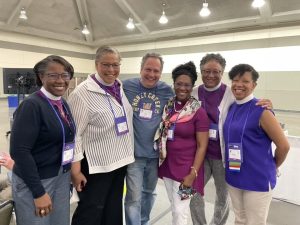 This General Convention was the seventh I have traveled to on behalf of the Diocese of Georgia, but my first in the House of Bishops. The General Convention is sometimes compared to the US legislature with a larger House of Representatives and small Senate. In the General Convention, the House of Deputies comprises four lay persons and four clergy persons from each diocese for more than 800 deputies in a typical convention. Every convention has a lot of first time deputies learning their way around. The House of Bishops, which is more analogous to the Senate, has less than 150 members and most have previously taken part in a convention.
This General Convention was the seventh I have traveled to on behalf of the Diocese of Georgia, but my first in the House of Bishops. The General Convention is sometimes compared to the US legislature with a larger House of Representatives and small Senate. In the General Convention, the House of Deputies comprises four lay persons and four clergy persons from each diocese for more than 800 deputies in a typical convention. Every convention has a lot of first time deputies learning their way around. The House of Bishops, which is more analogous to the Senate, has less than 150 members and most have previously taken part in a convention. 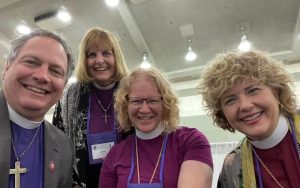 This familiarity changes the nature of debate on resolutions in the House of Bishops as you are speaking to a smaller group of people who you know well, creating a higher level of trust and allowing deeper conversations.
This familiarity changes the nature of debate on resolutions in the House of Bishops as you are speaking to a smaller group of people who you know well, creating a higher level of trust and allowing deeper conversations.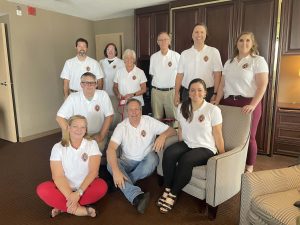 Having attended four prior General Conventions in the past (twice as an ECW Triennial Delegate and twice as a Deputy’s spouse), I felt somewhat prepared to serve as a first time Deputy for GC80. I was quite overwhelmed, however, with the rapid pace of voting on legislation on the house floor, with over 400 resolutions to be considered in only four days (and nights!). Just the time involved in searching the Virtual Binder to review the resolutions, the explanation of the resolutions, the floor amendments, the calendars, the agendas, the committee reports, and listening to the debates both for and against the resolutions, then being prepared to vote, was enough to make this first time Deputy’s head spin! Whew! It looked so much easier from the observer’s point of view! And then there were reports, memorials, elections, worship, and late evening deputation meetings, not to mention the daily Covid testing and wearing masks. But it was truly a privilege and a blessing to have the opportunity to do this work on behalf of our Diocese, and I am so very grateful for the support and assistance I received from my fellow deputies and from our Bishop, and for the opportunity to share this experience with them.
Having attended four prior General Conventions in the past (twice as an ECW Triennial Delegate and twice as a Deputy’s spouse), I felt somewhat prepared to serve as a first time Deputy for GC80. I was quite overwhelmed, however, with the rapid pace of voting on legislation on the house floor, with over 400 resolutions to be considered in only four days (and nights!). Just the time involved in searching the Virtual Binder to review the resolutions, the explanation of the resolutions, the floor amendments, the calendars, the agendas, the committee reports, and listening to the debates both for and against the resolutions, then being prepared to vote, was enough to make this first time Deputy’s head spin! Whew! It looked so much easier from the observer’s point of view! And then there were reports, memorials, elections, worship, and late evening deputation meetings, not to mention the daily Covid testing and wearing masks. But it was truly a privilege and a blessing to have the opportunity to do this work on behalf of our Diocese, and I am so very grateful for the support and assistance I received from my fellow deputies and from our Bishop, and for the opportunity to share this experience with them. It was the best of times. It was the worst of times. It was technology at General Convention. The 80th General Convention was the shortest in generations due pandemic concerns, only four days rather than the usual eight to ten days. How was this possible? The answer was technology. In particular, the committees of General Convention, which have previously only met in-person at convention, accomplished their tasks via zoom meetings in the three months leading up to the in-person meeting in Baltimore. Committee work is essential to the functioning of General Convention and thus the Church. Without technology, ie. the availability of zoom, it is possible that General Convention would have had to have been postponed another year. Technology, however, was not all good. General Convention has gone paperless with every deputy being assigned an iPad for access to the resolutions under consideration and for voting. Great idea, but an iPad is useless without reliable WIFI, and reliable WIFI was in short supply. A meaningful portion of those precious four days was squandered due to this problem. For all of its good and bad, technology is here to stay at General Convention. One of the resolutions passed was a change to the rules of the House of Deputies that will allow the use of zoom meetings in future conventions, not just in the extraordinary circumstances of this pandemic shortened meeting. This will allow more people to give input into the workings of the church—people can participate in committee without having to travel to convention for committee hearings—but we may lose the substantial benefit of people meeting face-to-face with all of the interactions that provides. Having been a deputy at four General Conventions. Technology, for good or for ill, will be playing an ever expanding role in the governance of the Episcopal Church.
It was the best of times. It was the worst of times. It was technology at General Convention. The 80th General Convention was the shortest in generations due pandemic concerns, only four days rather than the usual eight to ten days. How was this possible? The answer was technology. In particular, the committees of General Convention, which have previously only met in-person at convention, accomplished their tasks via zoom meetings in the three months leading up to the in-person meeting in Baltimore. Committee work is essential to the functioning of General Convention and thus the Church. Without technology, ie. the availability of zoom, it is possible that General Convention would have had to have been postponed another year. Technology, however, was not all good. General Convention has gone paperless with every deputy being assigned an iPad for access to the resolutions under consideration and for voting. Great idea, but an iPad is useless without reliable WIFI, and reliable WIFI was in short supply. A meaningful portion of those precious four days was squandered due to this problem. For all of its good and bad, technology is here to stay at General Convention. One of the resolutions passed was a change to the rules of the House of Deputies that will allow the use of zoom meetings in future conventions, not just in the extraordinary circumstances of this pandemic shortened meeting. This will allow more people to give input into the workings of the church—people can participate in committee without having to travel to convention for committee hearings—but we may lose the substantial benefit of people meeting face-to-face with all of the interactions that provides. Having been a deputy at four General Conventions. Technology, for good or for ill, will be playing an ever expanding role in the governance of the Episcopal Church. 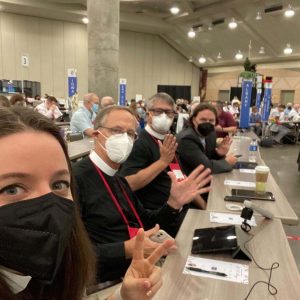 One of the recurring themes at this 80th General Convention has been racial justice and equity. The Episcopal Church has been on a journey in this regard for some time, having addressed matters of race consistently for decades. Much of this work has accelerated in recent years because of what has gone on in our nation, and the leadership of Presiding Bishop Michael Curry. While the General Convention has previously established educational offerings and encouraged the Beloved Community model as an aspiration for the Church, we have now committed to a time of study and introspection about our own specific history with race as a church. This includes evaluating the sources of Episcopal Church financial resources and beginning to allocate future funds to building up historically underrepresented peoples. We have also called for an honest evaluation of the Church’s role in facilitating indigenous boarding schools, where indigenous children were often abused. Understanding our history and the actions of previous generations is not about guilt, but about healing. If we do not know or admit the legacy of the Church’s historic actions we will continue to struggle to facilitate healing and reconciliation. Much of that history is recent enough that Deputies gave personal testimony on such matters. Before the 81st General Convention such investigations should give us a full sense of where we’ve been in the hopes that we can form a future that is defined by reconciling love.
One of the recurring themes at this 80th General Convention has been racial justice and equity. The Episcopal Church has been on a journey in this regard for some time, having addressed matters of race consistently for decades. Much of this work has accelerated in recent years because of what has gone on in our nation, and the leadership of Presiding Bishop Michael Curry. While the General Convention has previously established educational offerings and encouraged the Beloved Community model as an aspiration for the Church, we have now committed to a time of study and introspection about our own specific history with race as a church. This includes evaluating the sources of Episcopal Church financial resources and beginning to allocate future funds to building up historically underrepresented peoples. We have also called for an honest evaluation of the Church’s role in facilitating indigenous boarding schools, where indigenous children were often abused. Understanding our history and the actions of previous generations is not about guilt, but about healing. If we do not know or admit the legacy of the Church’s historic actions we will continue to struggle to facilitate healing and reconciliation. Much of that history is recent enough that Deputies gave personal testimony on such matters. Before the 81st General Convention such investigations should give us a full sense of where we’ve been in the hopes that we can form a future that is defined by reconciling love.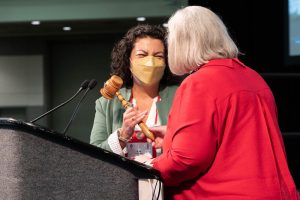 In Austin, at the 79th General Convention, Georgia’s Deputy the Rev. Cynthia Taylor was working with a group of lay and clergy women to bring forth reckoning and healing regarding gender-based abuse with the ultimately passed set of “#metoo” resolutions. Principle in the coordination of those successful efforts was Cynthia+ and others’ testimonies, which came forth through the collaborative organization of Executive Council member Julia Ayala Harris among a few others.
In Austin, at the 79th General Convention, Georgia’s Deputy the Rev. Cynthia Taylor was working with a group of lay and clergy women to bring forth reckoning and healing regarding gender-based abuse with the ultimately passed set of “#metoo” resolutions. Principle in the coordination of those successful efforts was Cynthia+ and others’ testimonies, which came forth through the collaborative organization of Executive Council member Julia Ayala Harris among a few others.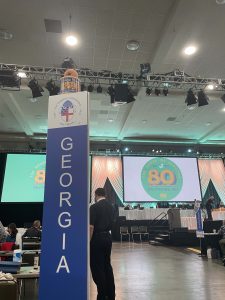 While the entire experience of my first General Convention was illuminating and inspiring, I was especially excited about legislation that advanced two of my own areas of ministry, immigration and Creation Care.
While the entire experience of my first General Convention was illuminating and inspiring, I was especially excited about legislation that advanced two of my own areas of ministry, immigration and Creation Care.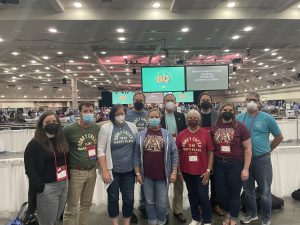 There were two particularly important pieces of legislation involving our Indigenous brothers and sisters that passed at the 80th General Convention. On the first legislative day, the House of Deputies heard testimony from some of our indigenous sisters who had been personally affected or whose family members were affected by their experiences in Episcopal boarding schools. The testimony was heartfelt and impassioned, and sometimes difficult to hear. To hear about incidents of abuse that happened to indigenous students “on our watch” was disturbing and eye opening. It was important for all of us for these testimonies to be given. It is a step toward much of the focus of this convention – Truth Telling and Reparation. We must know our entire past to be able to have a stronger future.
There were two particularly important pieces of legislation involving our Indigenous brothers and sisters that passed at the 80th General Convention. On the first legislative day, the House of Deputies heard testimony from some of our indigenous sisters who had been personally affected or whose family members were affected by their experiences in Episcopal boarding schools. The testimony was heartfelt and impassioned, and sometimes difficult to hear. To hear about incidents of abuse that happened to indigenous students “on our watch” was disturbing and eye opening. It was important for all of us for these testimonies to be given. It is a step toward much of the focus of this convention – Truth Telling and Reparation. We must know our entire past to be able to have a stronger future.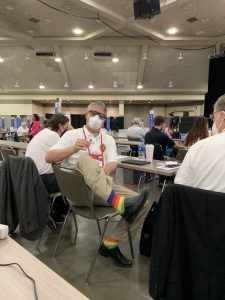 As a first-time deputy, it was a joy to attend and represent this diocese that has become home to my family and me. One of the truly refreshing aspects of General Convention was its inclusive nature. Inclusion wasn’t something simply given lip-service, but intentionally lived out in multiple aspects. From the ASL interpreter and captioning on every screen; worshiping in multiple languages; deputies who were in their teens to deputies who had been to 15 conventions; diversity among deputies including a high number of deputies of color, women, and deputies who are part of the LGBTQ+ community; one could not fail to notice the work that has been done to truly give voice to as broad a spectrum as possible.
As a first-time deputy, it was a joy to attend and represent this diocese that has become home to my family and me. One of the truly refreshing aspects of General Convention was its inclusive nature. Inclusion wasn’t something simply given lip-service, but intentionally lived out in multiple aspects. From the ASL interpreter and captioning on every screen; worshiping in multiple languages; deputies who were in their teens to deputies who had been to 15 conventions; diversity among deputies including a high number of deputies of color, women, and deputies who are part of the LGBTQ+ community; one could not fail to notice the work that has been done to truly give voice to as broad a spectrum as possible. 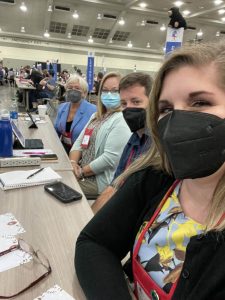 As the former Nominations Chair and Elections Czarina for the Diocese of Georgia, I’ve had the opportunity to facilitate the elections of our General Convention deputies the last few General Conventions. It was always an honor to send our deputation off to the infamous General Convention, and when I decided to run, it was with great respect and excitement. As a self proclaimed Church Nerd, arriving to the floor of convention was overwhelming. And getting to vote for the first time? Pure giddiness! Each session I grew more comfortable with the process and the flow of convention. We passed a lot of resolutions, had interesting conversations, and held elections. But more importantly, I came away with an even greater love for our church and the people in it. We continue to see where we have wronged others and how we can make amends, we continue to work towards proclaiming that the love of Christ is not exclusionary, and we look towards the future of the church. For all of this, and more, I am grateful to have been a member of our diocesan deputation.
As the former Nominations Chair and Elections Czarina for the Diocese of Georgia, I’ve had the opportunity to facilitate the elections of our General Convention deputies the last few General Conventions. It was always an honor to send our deputation off to the infamous General Convention, and when I decided to run, it was with great respect and excitement. As a self proclaimed Church Nerd, arriving to the floor of convention was overwhelming. And getting to vote for the first time? Pure giddiness! Each session I grew more comfortable with the process and the flow of convention. We passed a lot of resolutions, had interesting conversations, and held elections. But more importantly, I came away with an even greater love for our church and the people in it. We continue to see where we have wronged others and how we can make amends, we continue to work towards proclaiming that the love of Christ is not exclusionary, and we look towards the future of the church. For all of this, and more, I am grateful to have been a member of our diocesan deputation. 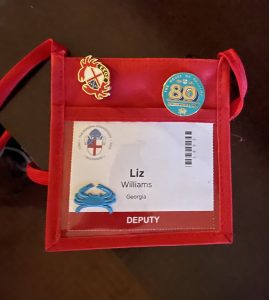 After a one year delay due to the pandemic, we returned to General Convention masked, vaccinated and ready to do the work of the Church. As Chair of Credentials, I had the unique opportunity to oversee the “checking in” of all deputies to ensure voice and vote of the dioceses. At last count, 802 deputies (clergy and lay) representing 107 dioceses were seated. My committee worked long hours on registration day, and then every day of sessions, as deputies checked in and alternates and deputies switched in and out. With shortened time frame and increased Covid restrictions, I knew this Convention would be different, and it was. Having been a deputy before, I missed the expanded worship services, the fellowship gatherings, the exhibit hall, and the in-person legislative hearings (and the snacks at the tables!). We still gathered together to accomplish the necessary tasks required by our constitution and canons. In spite of the differences between this Convention and others, great work, positive changes, and history-making elections were the result.
After a one year delay due to the pandemic, we returned to General Convention masked, vaccinated and ready to do the work of the Church. As Chair of Credentials, I had the unique opportunity to oversee the “checking in” of all deputies to ensure voice and vote of the dioceses. At last count, 802 deputies (clergy and lay) representing 107 dioceses were seated. My committee worked long hours on registration day, and then every day of sessions, as deputies checked in and alternates and deputies switched in and out. With shortened time frame and increased Covid restrictions, I knew this Convention would be different, and it was. Having been a deputy before, I missed the expanded worship services, the fellowship gatherings, the exhibit hall, and the in-person legislative hearings (and the snacks at the tables!). We still gathered together to accomplish the necessary tasks required by our constitution and canons. In spite of the differences between this Convention and others, great work, positive changes, and history-making elections were the result.